Last August, China opened its first overseas military base in Djibouti, a tiny nation in the Horn of Africa. Djibouti plays host to more foreign military facilities than anywhere else in the world, offering a key strategic location to supply regional peacekeeping and humanitarian missions and combat piracy. This August, China was reported to be funding a mountain brigade and training facility for Afghan troops in the Wakhan Corridor, bordering China’s troubled Muslim region of Xinjiang
Why Djibouti?
China formally opened its first overseas military base on August 1, 2017 — the same day that the People’s Liberation Army celebrated its 90th birthday. Beijing says Djibouti is ideally placed for China to resupply peacekeeping and humanitarian missions and combat piracy off the coasts of Yemen and Somalia.
A former French colony, the multi-ethnic Republic of Djibouti is about the size of Wales. It occupies 23,200km sq of mostly volcanic desert, is devoid of natural resources, and has a population below a million. However, the country’s location is of key strategic value. Situated on the northwestern edge of the Indian Ocean, at the southern entrance to the Red Sea, Djibouti controls access to the Suez Canal and the Indian Ocean, home to some of the world’s busiest shipping lanes. Djibouti offers China the ability to operate military missions far from home.August, 2017
Not everyone views China’s base as entirely benevolent. New Delhi has voiced concerns that the naval and logistics facility is part of a broader plan to establish another “string of pearls”, with Bangladesh, Myanmar and Sri Lanka, encircling India. There have also been persistent rumours that China intends to build more bases in countries such as Pakistan. Beijing strenuously denies these claims. US lawmakers warned there would be ‘significant’ consequences should there be a Chinese takeover of Djibouti’s port operations.
Djibouti’s Finance Minister Ilyas Dawaleh has said, “Djibouti’s development needs all its friends and strategic partners. At the same time, no one can dictate to us who we should deal with.”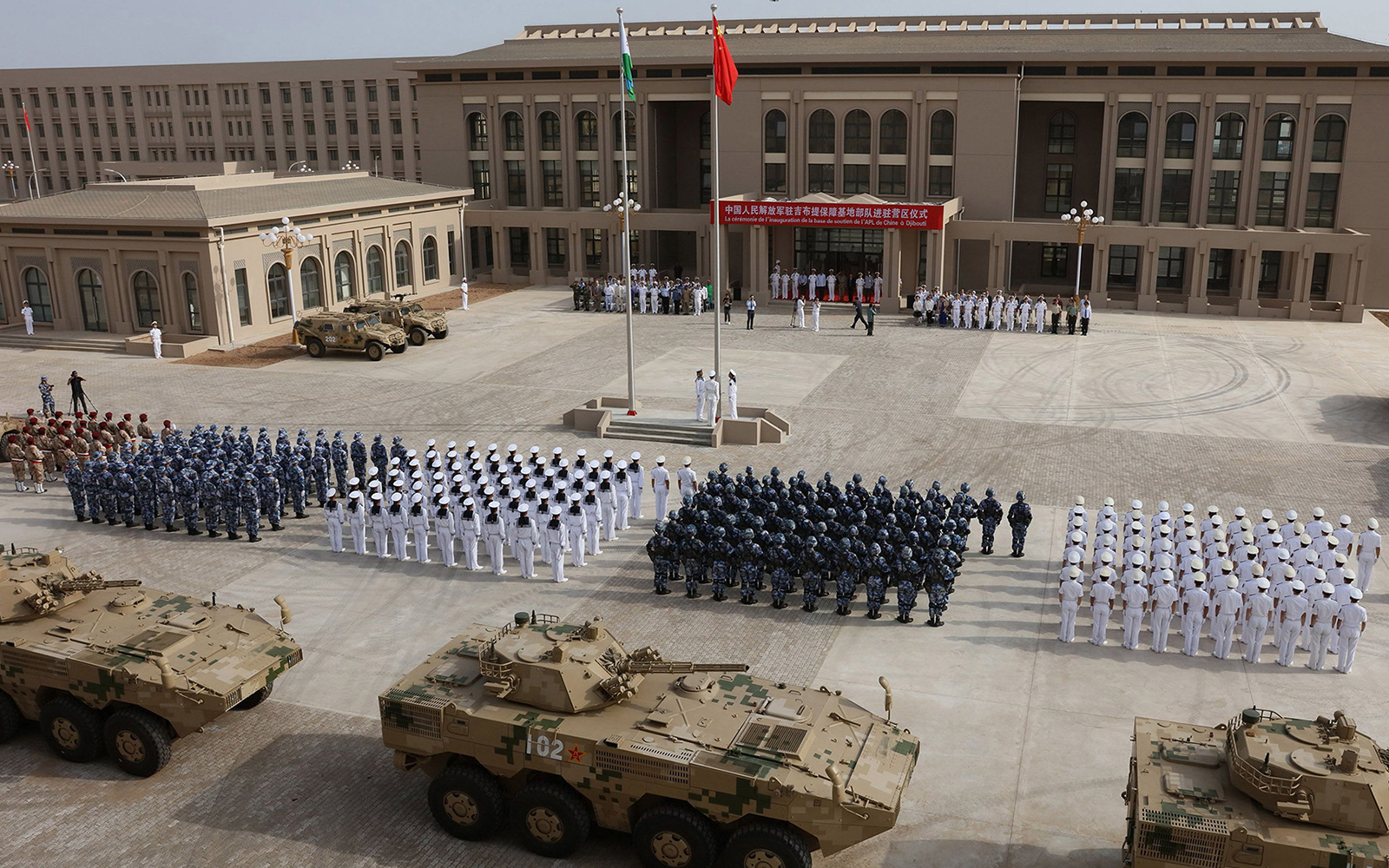

The opening ceremony of China’s new military base in Djibouti on August 1, 2017. Photo: AFP
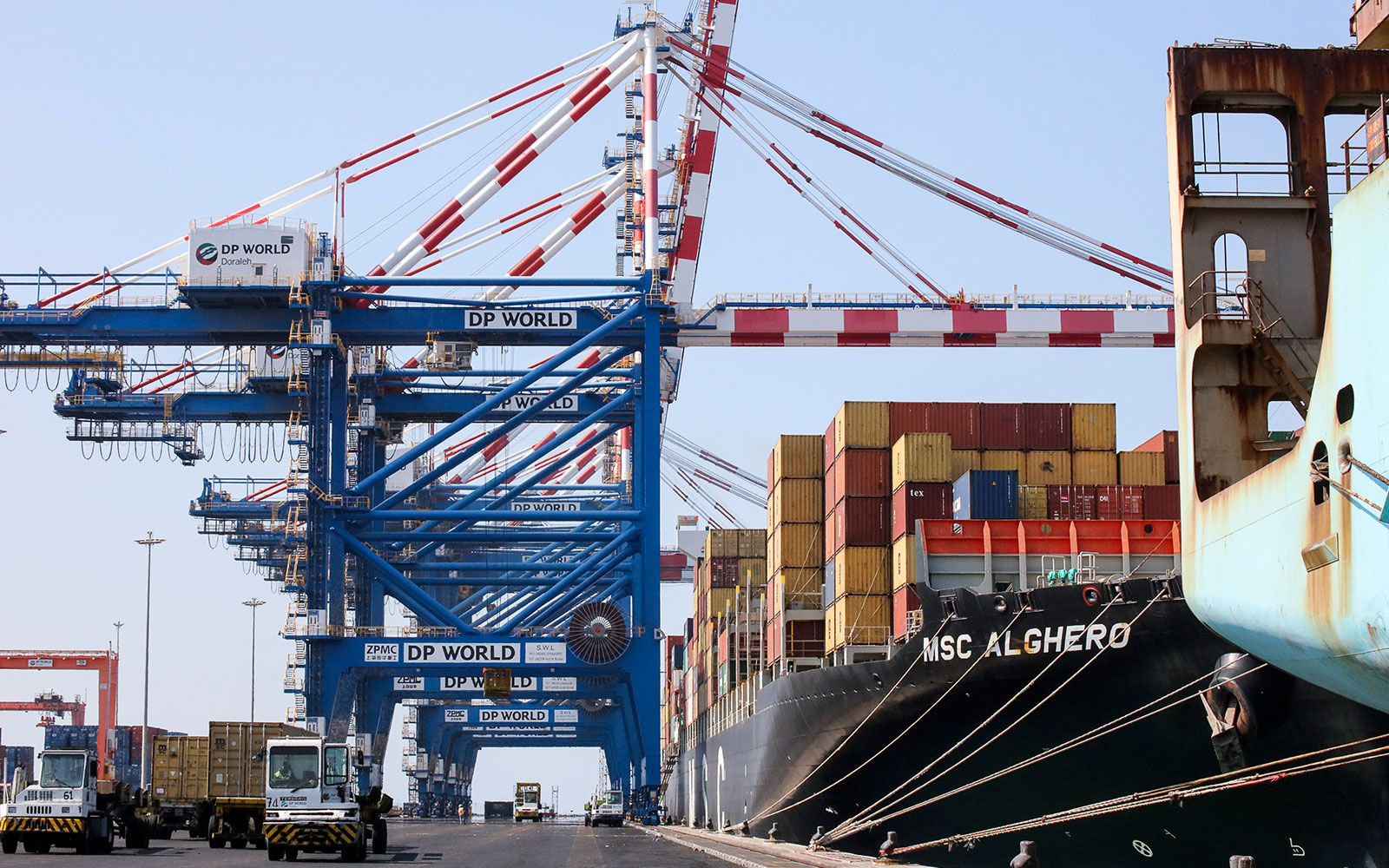


The Doraleh Container Terminal is the lifeblood of Djibouti’s economy. Photo: SCMP / Felix Wong
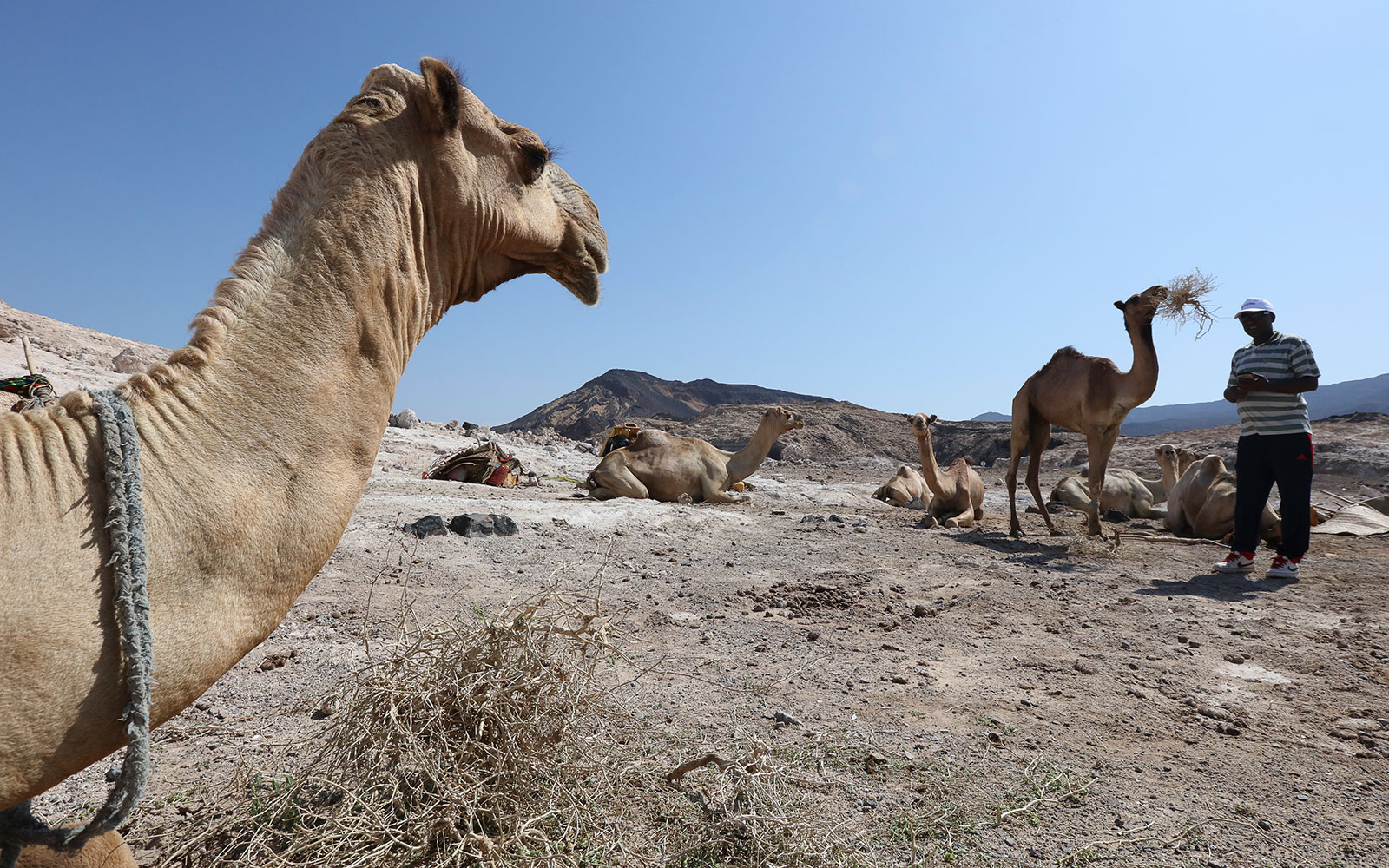


The barren nation is sandwiched between Ethiopia, Eritrea and Somalia. Photo: SCMP / Felix Wong
The opening ceremony of China’s new military base in Djibouti on August 1, 2017. Photo: AFP
The Doraleh Container Terminal is the lifeblood of Djibouti’s economy. Photo: SCMP / Felix Wong
The barren nation is sandwiched between Ethiopia, Eritrea and Somalia. Photo: SCMP / Felix Wong
❯
❮
Countries affected by conflict 2018
Evacuations of non-combatant Chinese nationals 2006-2015
Locations rumoured to be potential future overseas bases for China
Overseas US military bases 2017
Areas at risk from piracy 2017
China’s “Belt and Road Initiative”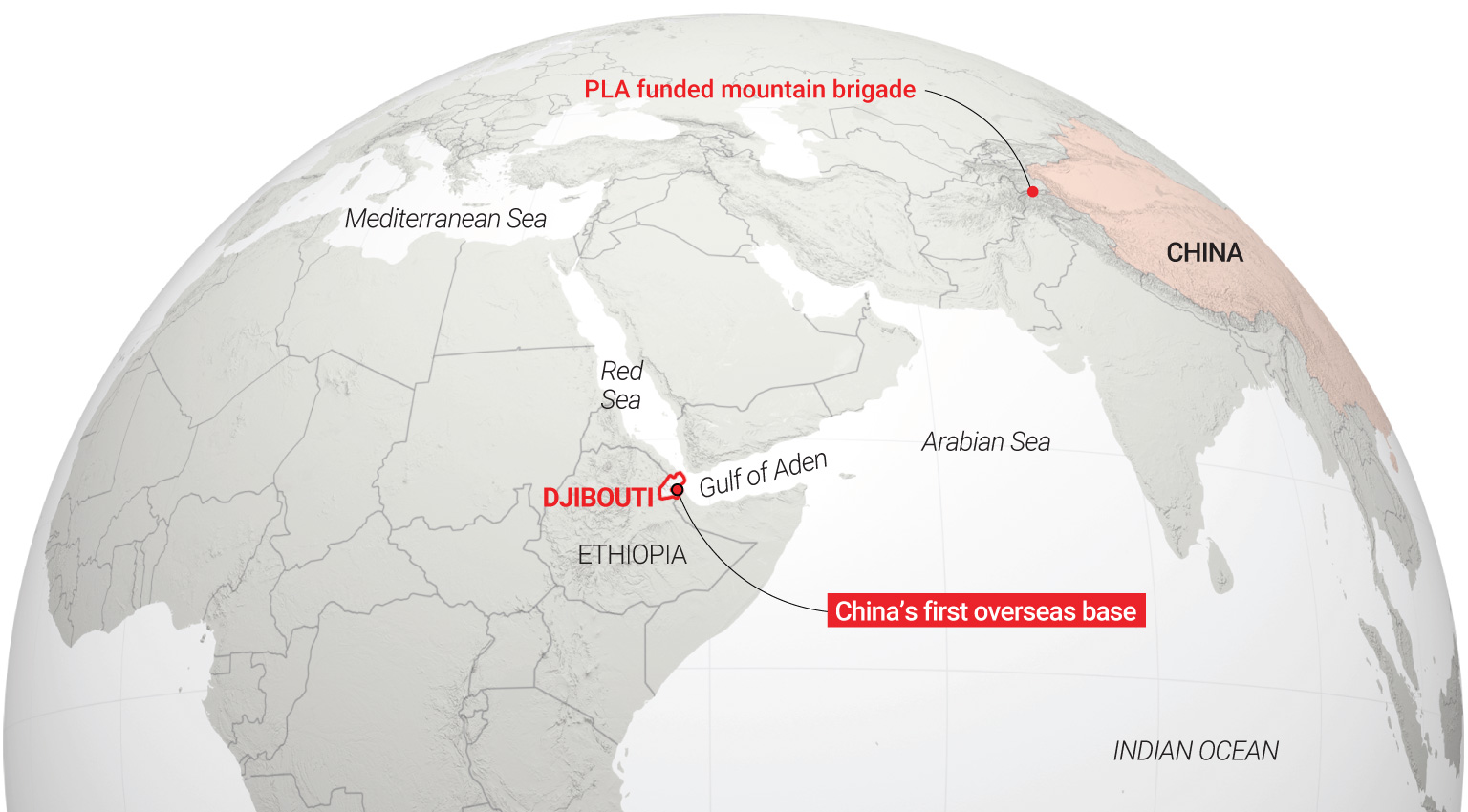
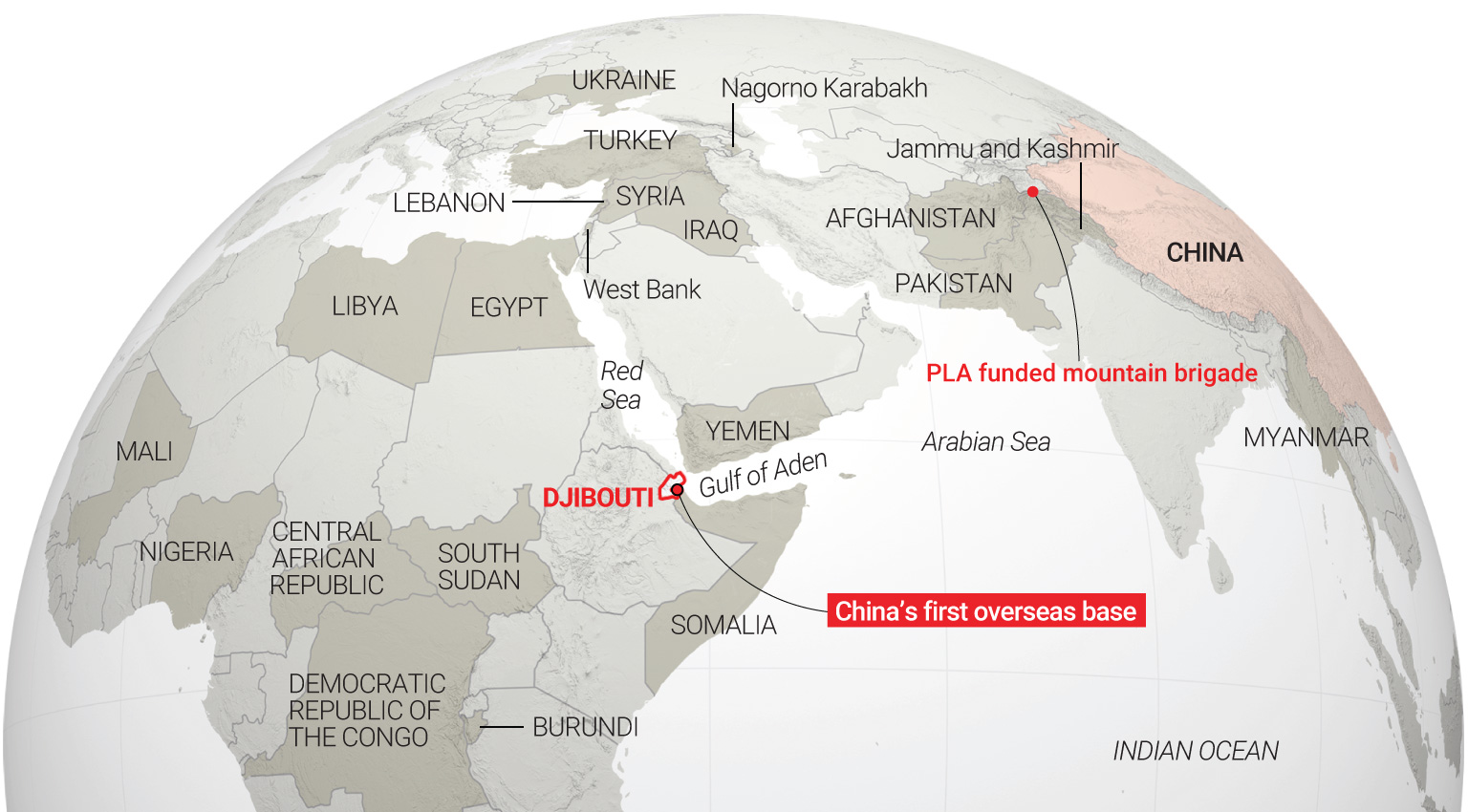
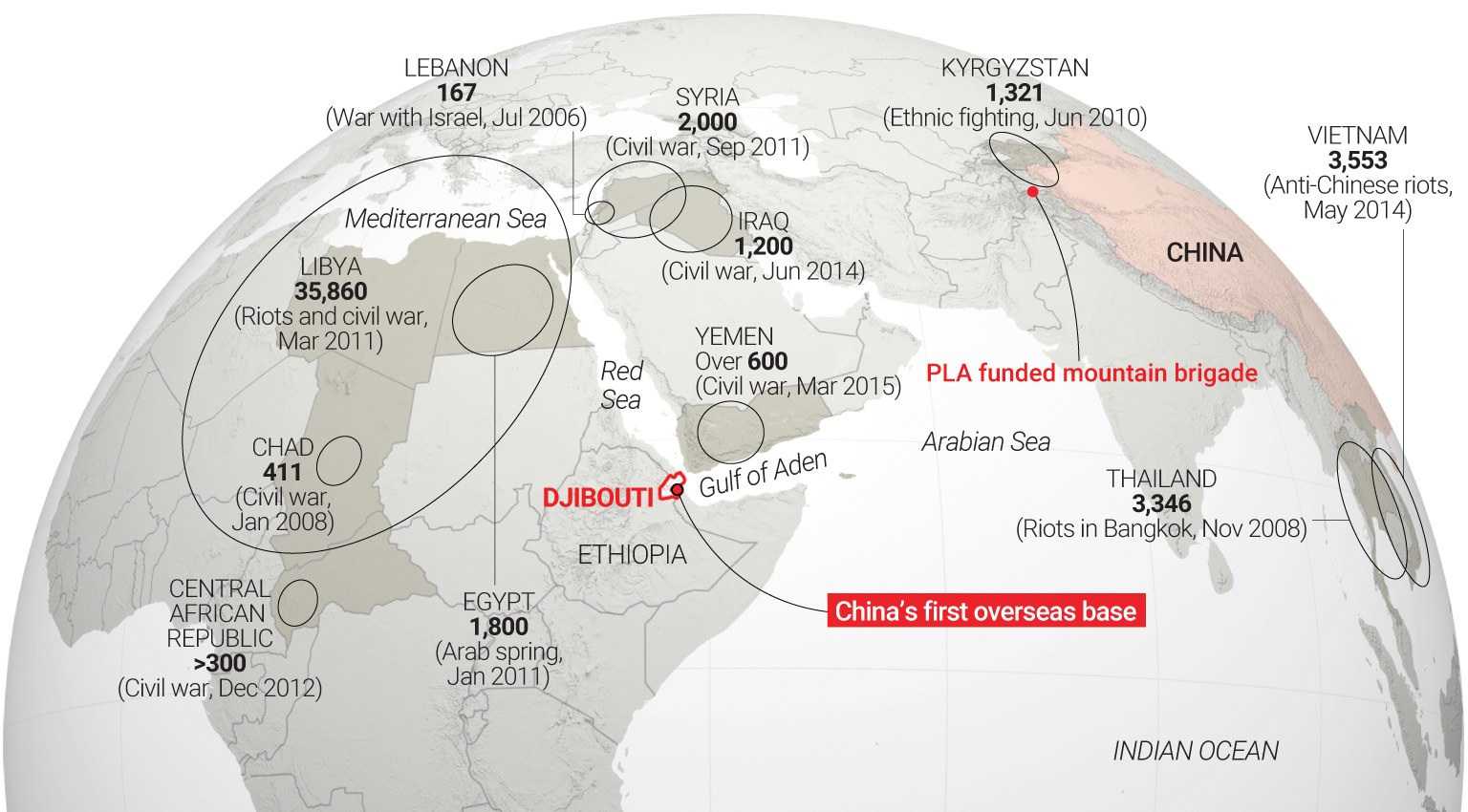
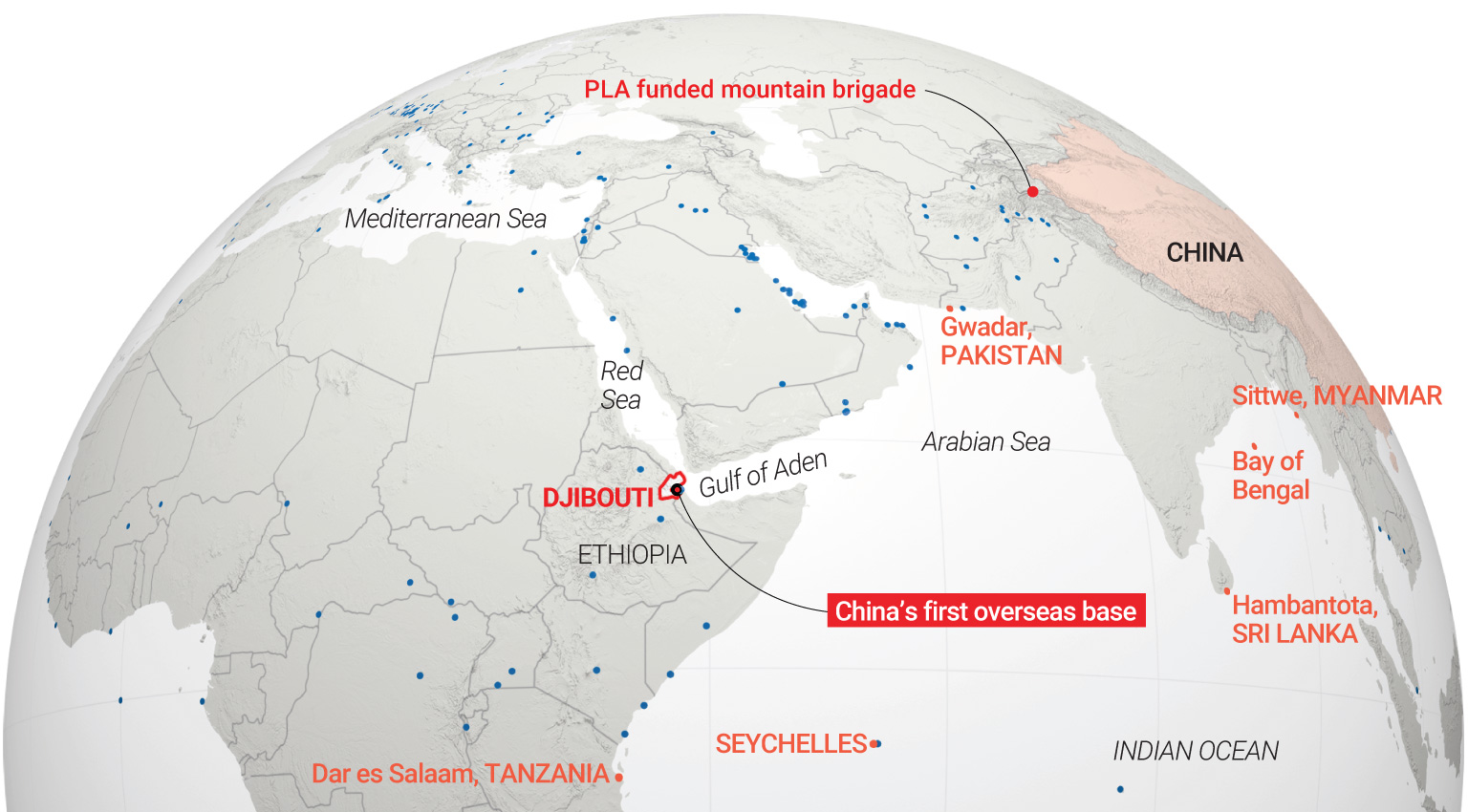
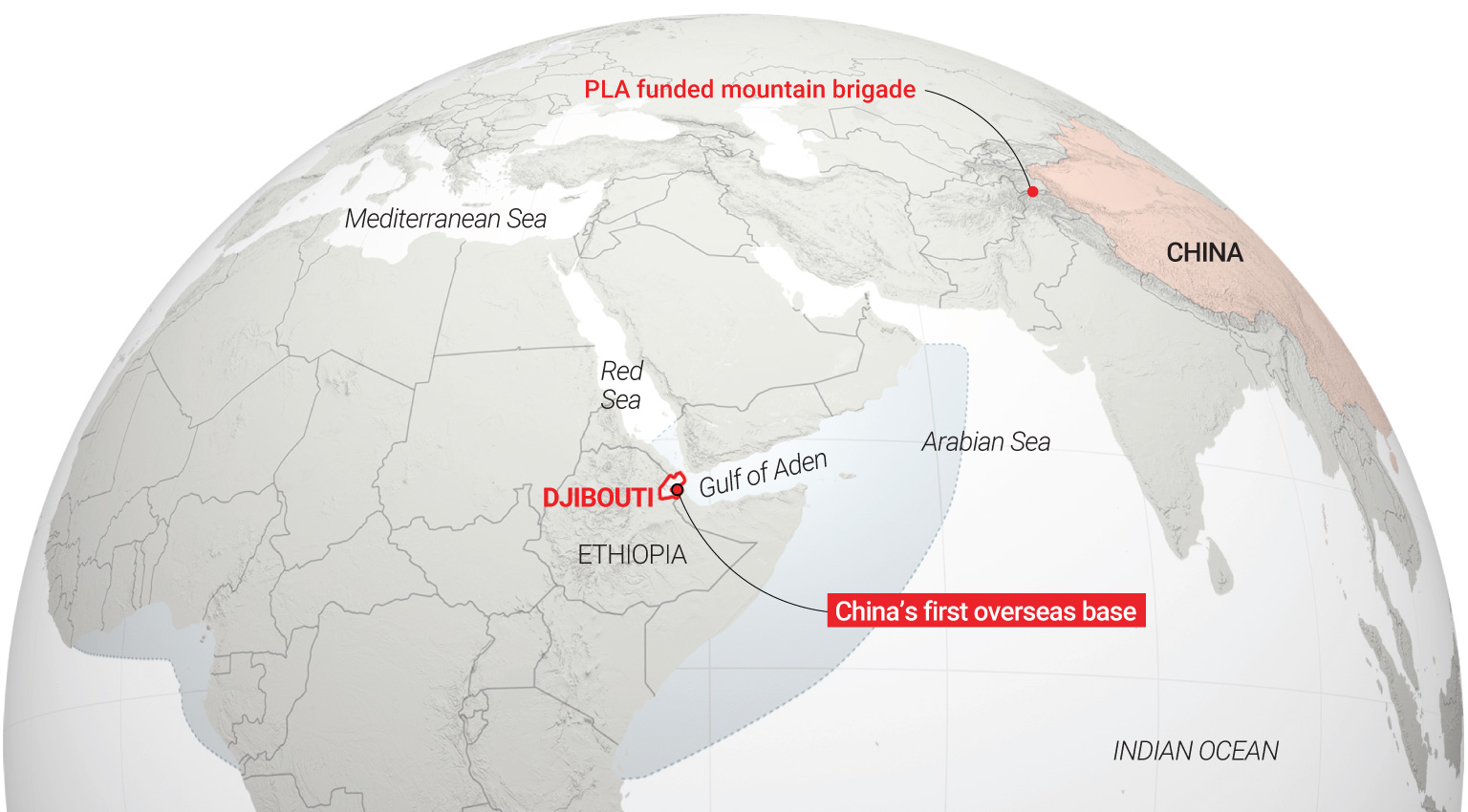
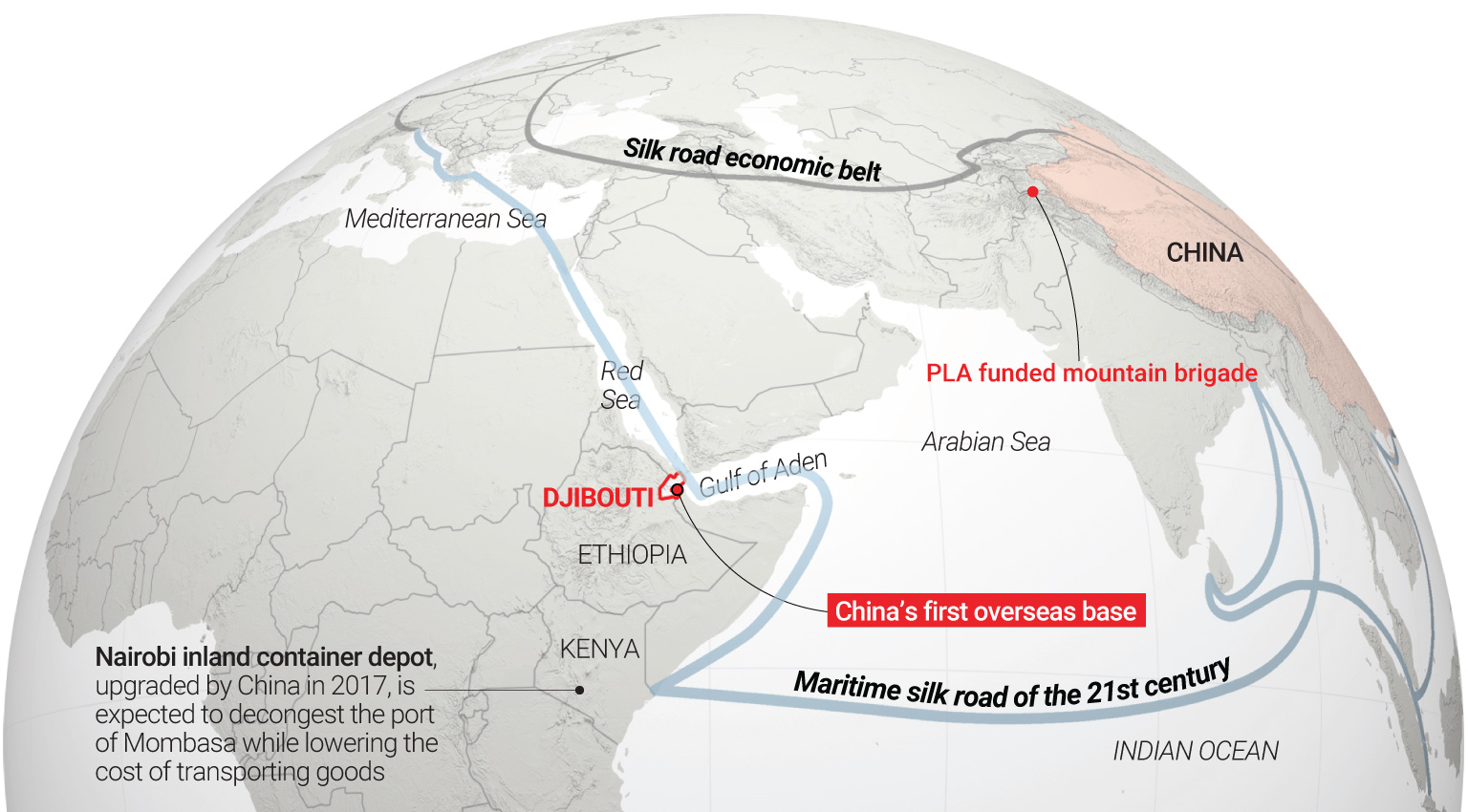






Sources: Council on Foreign Relations, Stockholm International Peace Research Institute, David Vine — “List of U.S. Military Bases Abroad, 2017”, CNA, Result Group GmbH
Show of force
Djibouti is home to more foreign bases than any other country. Since the turn of the century the US, and various European and Asian countries, have set up military camps there. Analysts say the country’s geostrategic location and its recent stability in a volatile region has turned it into a military playground for world powers.
s After the events of September 11, 2001, the US established Camp Lemonnier to combat terrorist threats from Yemen and the Horn of Africa. Japan’s first foreign military base since the second world war is also situated in Djibouti and is set to expand as a counterweight to China’s increasing influence in the region. Italy has its own base, while German and Spanish troops are hosted by the French.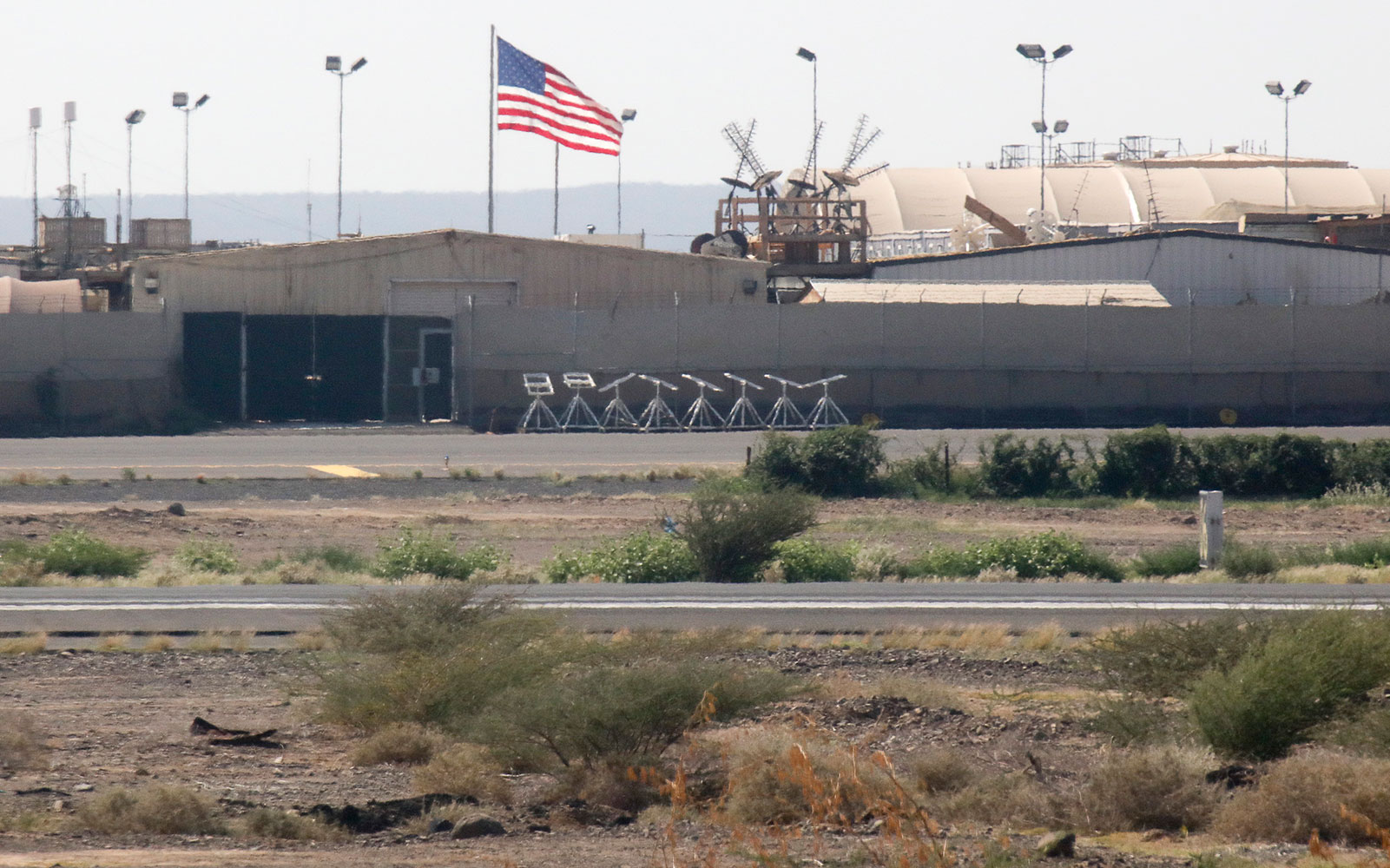

Camp Lemonnier is the largest US military base in Africa. Photo: SCMP / Felix Wong
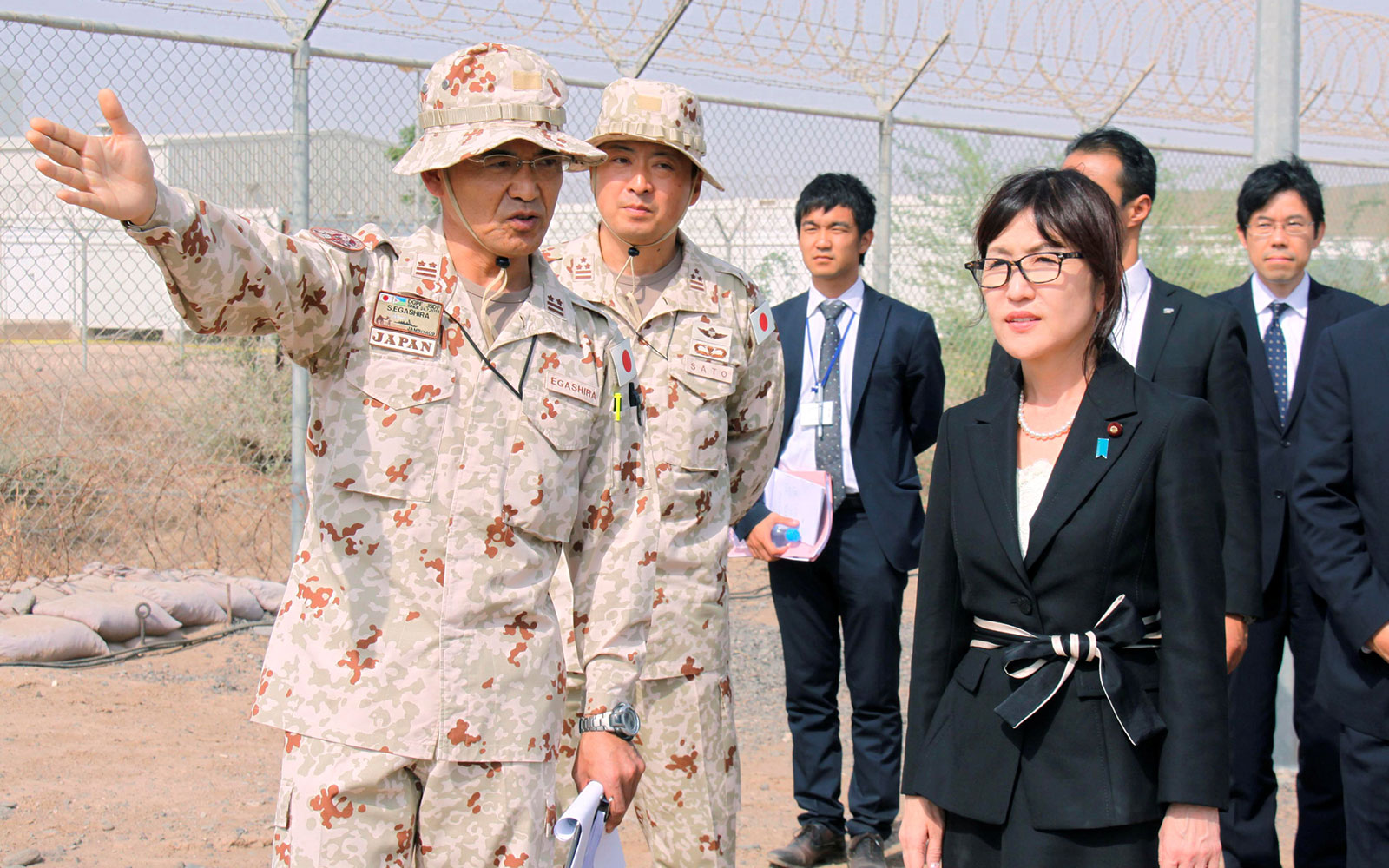


The Japan Self-Defence Forces is set to expand by more than seven acres. Photo: Kyodo/via Reuters
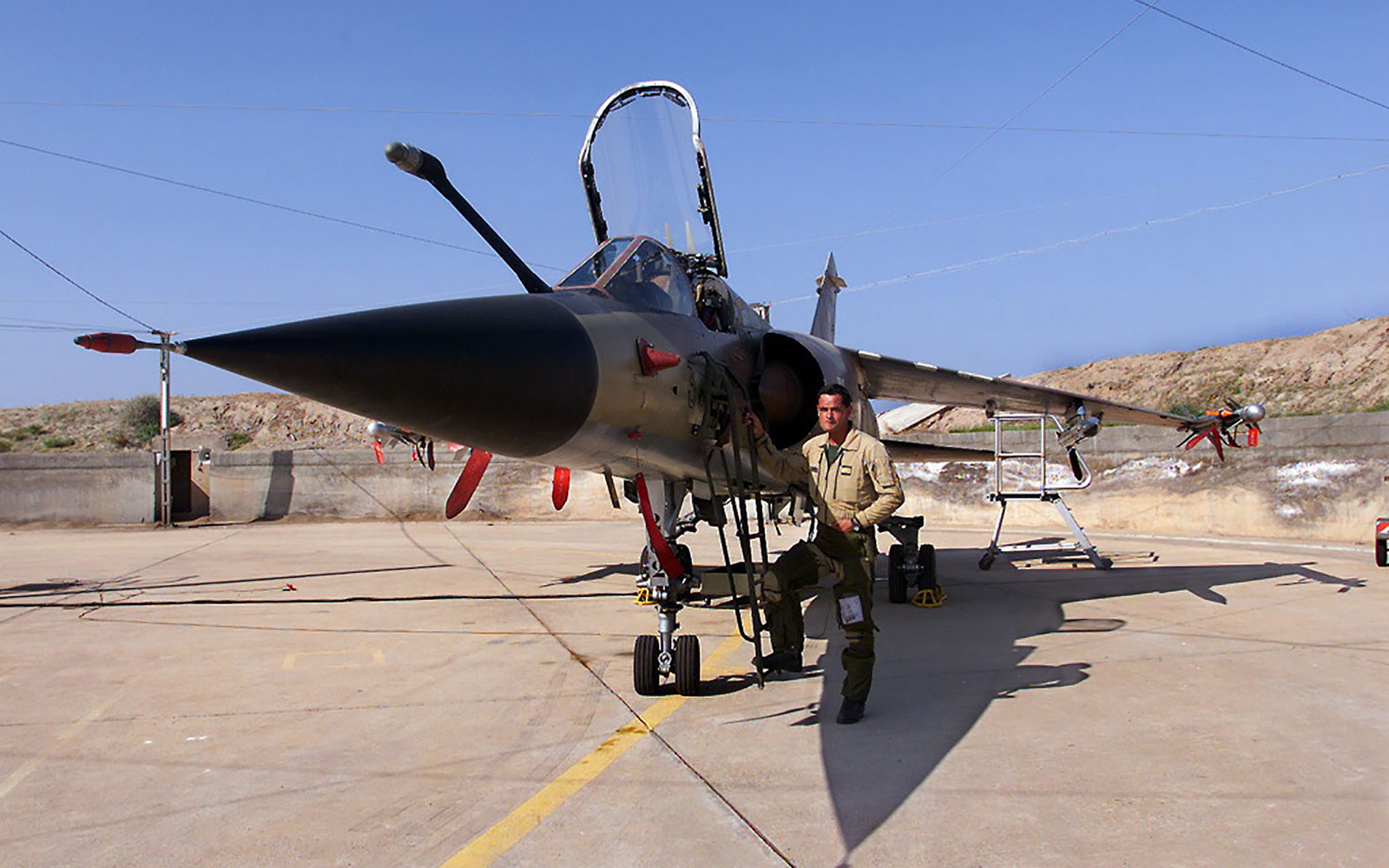


Until 2002 only the French maintained a strong military presence in Djibouti. Photo: AFP
Camp Lemonnier is the largest US military base in Africa. Photo: SCMP / Felix Wong
The Japan Self-Defence Forces is set to expand by more than seven acres. Photo: Kyodo/via Reuters
Until 2002 only the French maintained a strong military presence in Djibouti. Photo: AFP
❯
❮
Foreign military facilities in Djibouti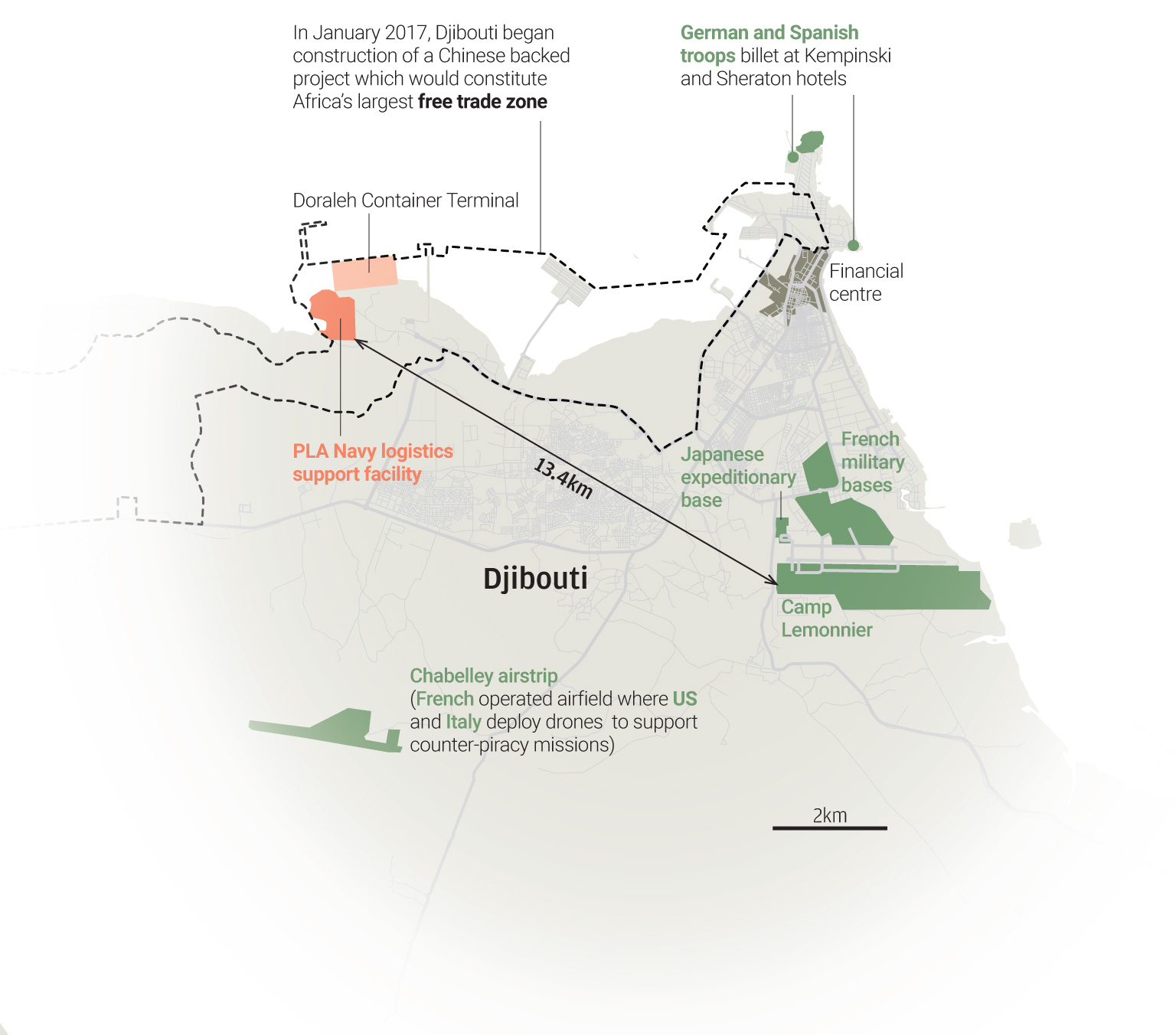
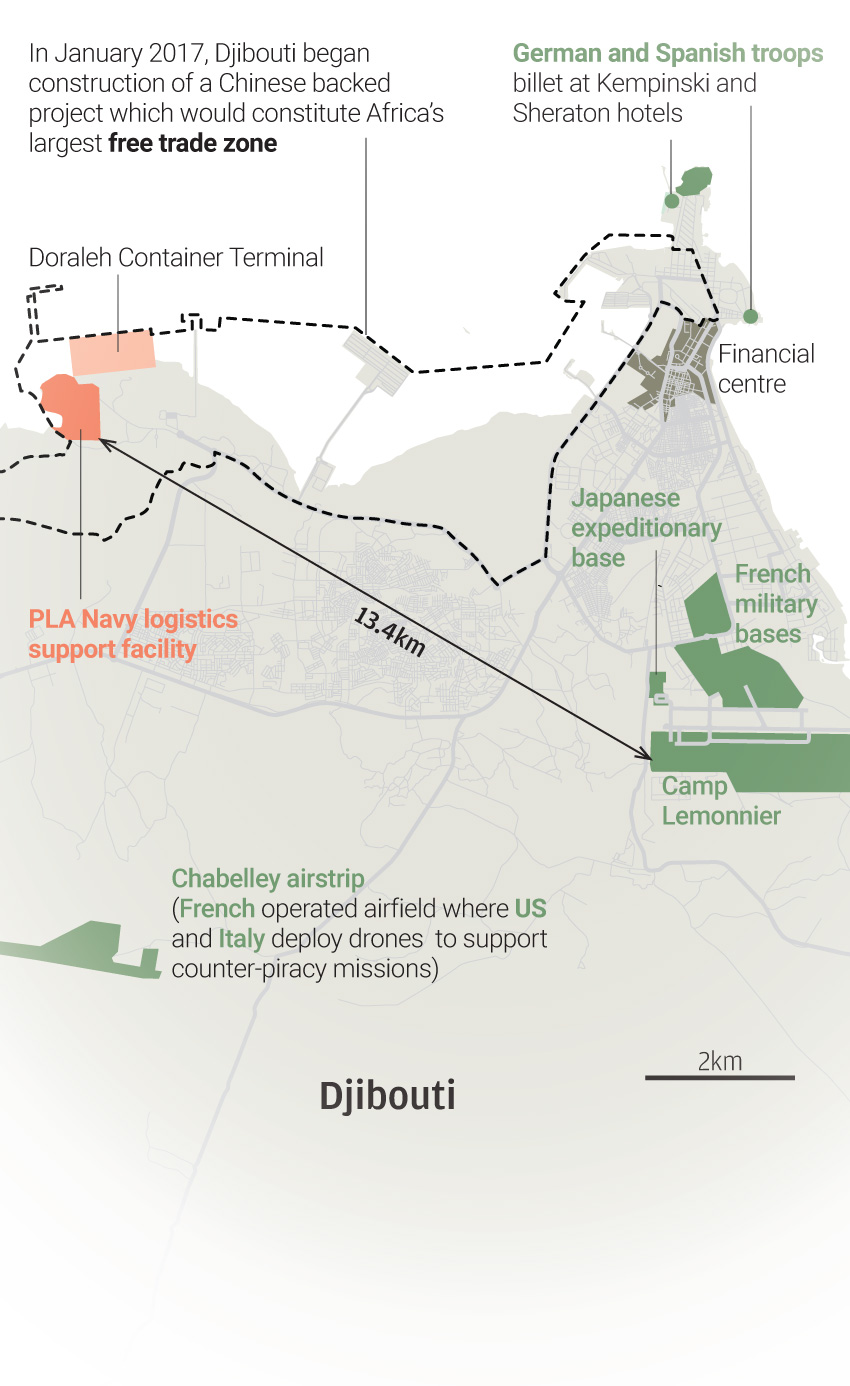


Personnel
Western media speculate China’s military facility could accommodate up to 10,000 personnel

Source: CNA
Before and after
The naval base and Doraleh Container Terminal built by China
Base upgrade
Expansion of the pier and new observation post
Military missions
Countering piracy Support escort missions in the Gulf of Aden and pirate-infested Somali waters.
Intelligence China can potentially gather information on other countries’ military activities in Africa.
Protect Chinese nationals China can evacuate its nationals during conflicts. There is an increasing number of non-combatant expatriates working in the volatile region.
International peacekeeping China currently has over 2,507 UN peacekeeping troops in Africa.
Counterterrorism: Chinese nationals living and working in the region face significant threats from terrorismJuly, 2017
Money Matters
Djibouti’s economic activity is centred on its port facilities, the Addis Ababa-Djibouti Railway, and foreign military bases, with industry accounting for less than 20 per cent of GDP. Increased investment, particularly in construction and port operations, has led to relatively high economic growth in recent years.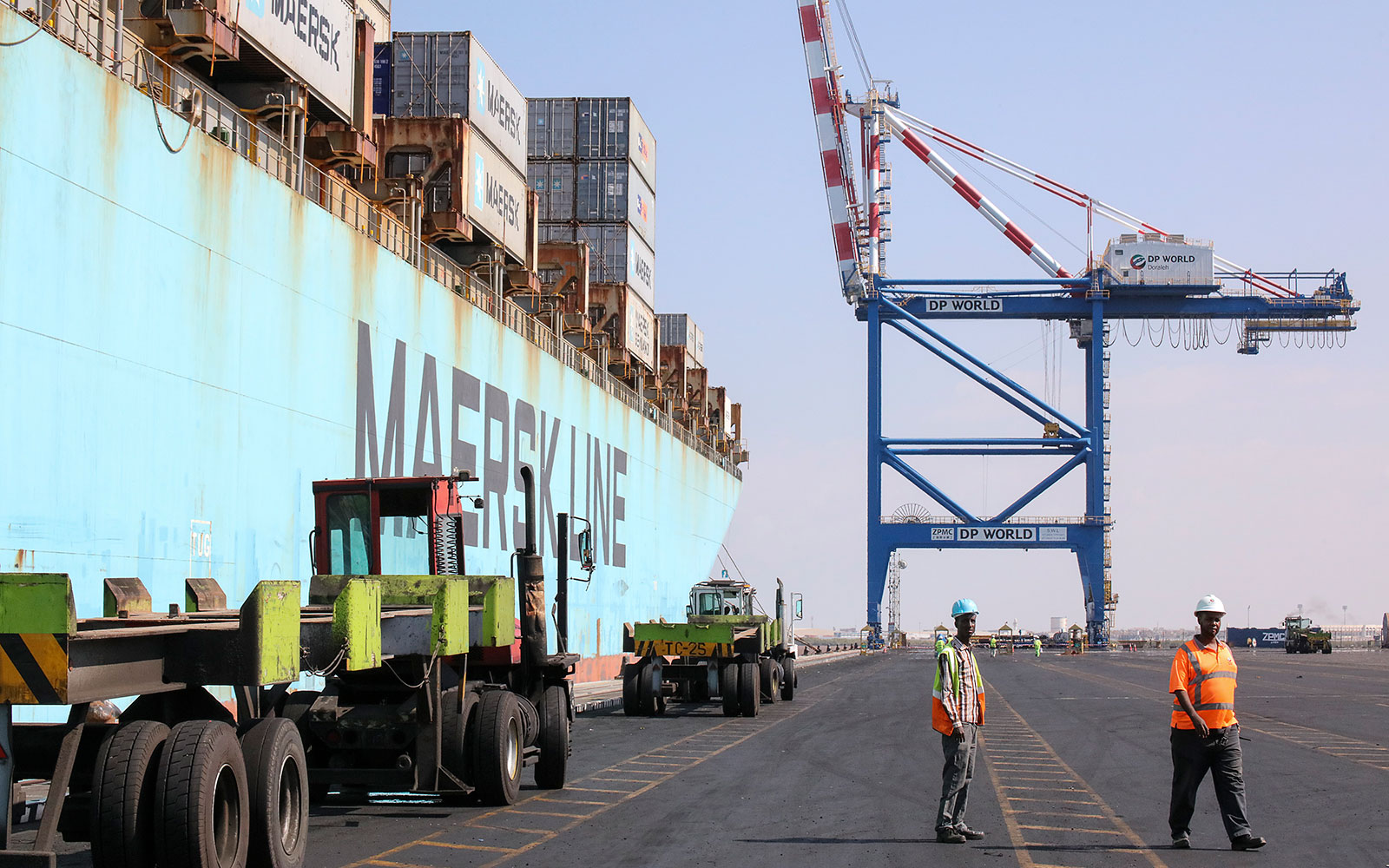

Djibouti terminated its concession to Dubai’s state-owned DP World to run Doraleh Container Terminal in early 2018. Photo: SCMP / Felix Wong
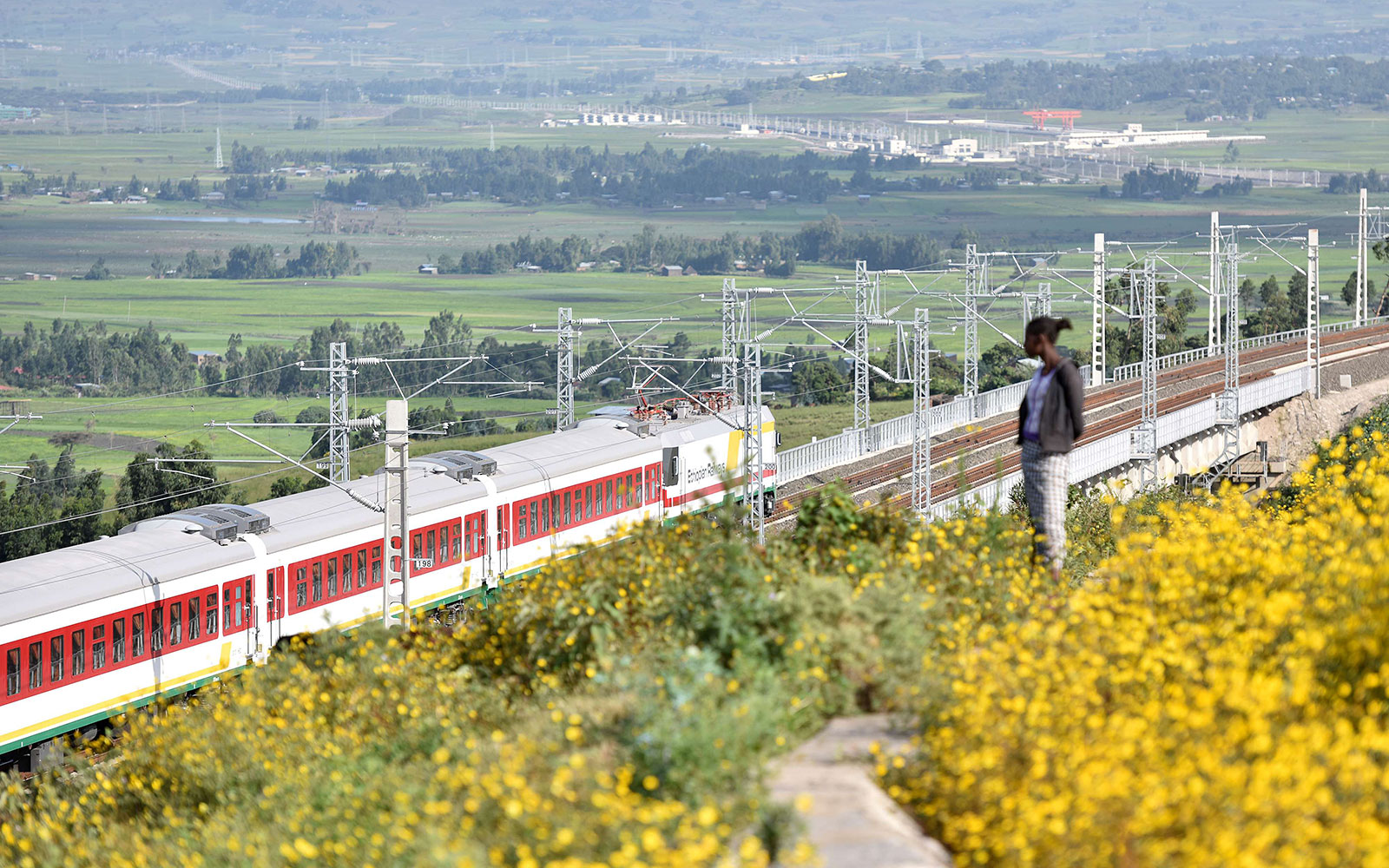


The railway links landlocked Ethiopia with Djibouti to provide access to the sea via Doraleh Container Terminal. Photo: Xinhua
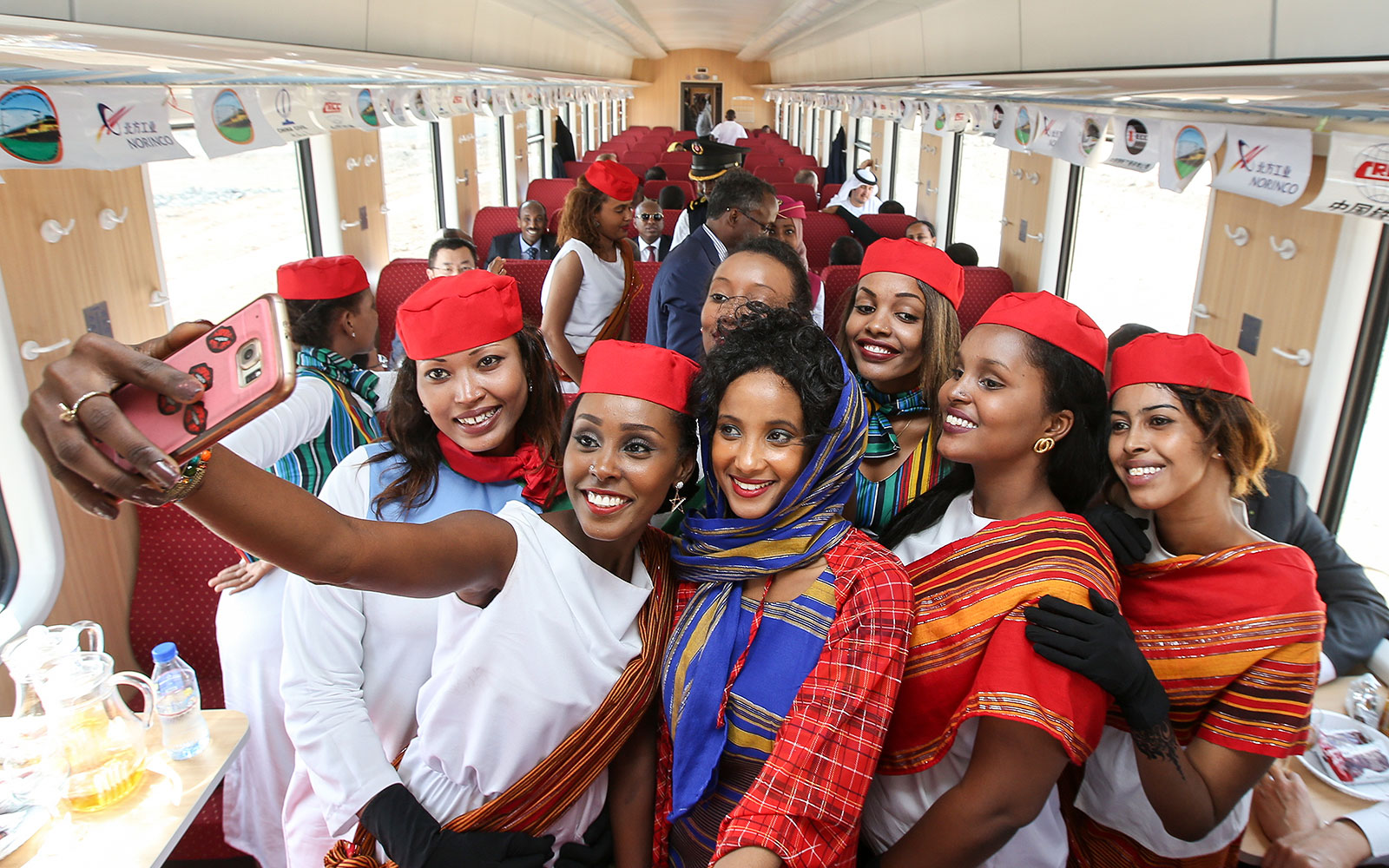


The first departure of the Addis Ababa-Djibouti Railway on January 1, 2018. Photo: SCMP / Felix Wong
Djibouti terminated its concession to Dubai’s state-owned DP World to run Doraleh Container Terminal in early 2018. Photo: SCMP / Felix Wong
The railway links landlocked Ethiopia with Djibouti to provide access to the sea via Doraleh Container Terminal. Photo: Xinhua
The first departure of the Addis Ababa-Djibouti Railway on January 1, 2018. Photo: SCMP / Felix Wong
❯
❮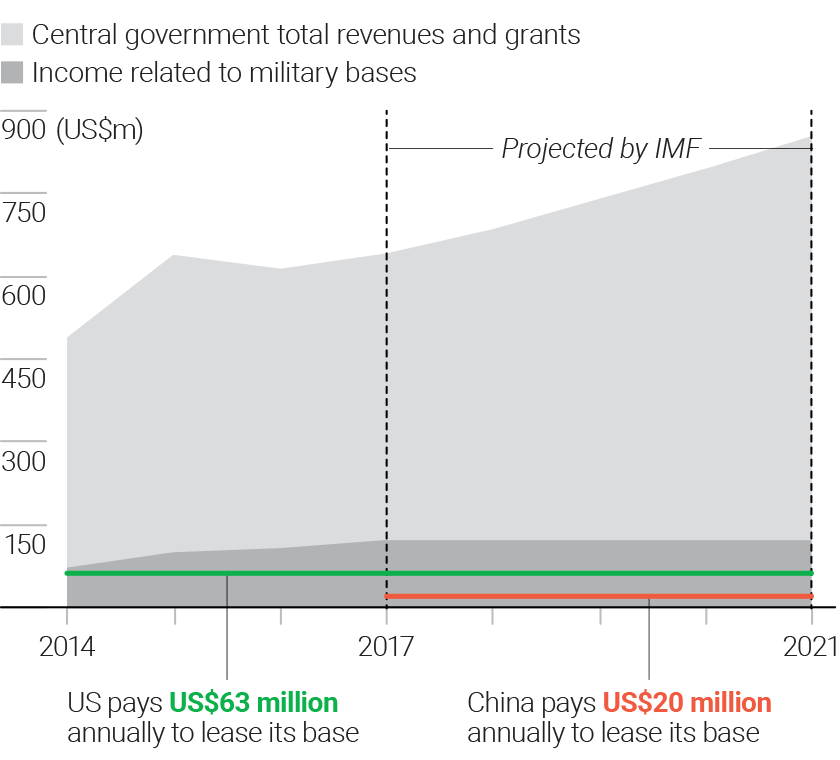
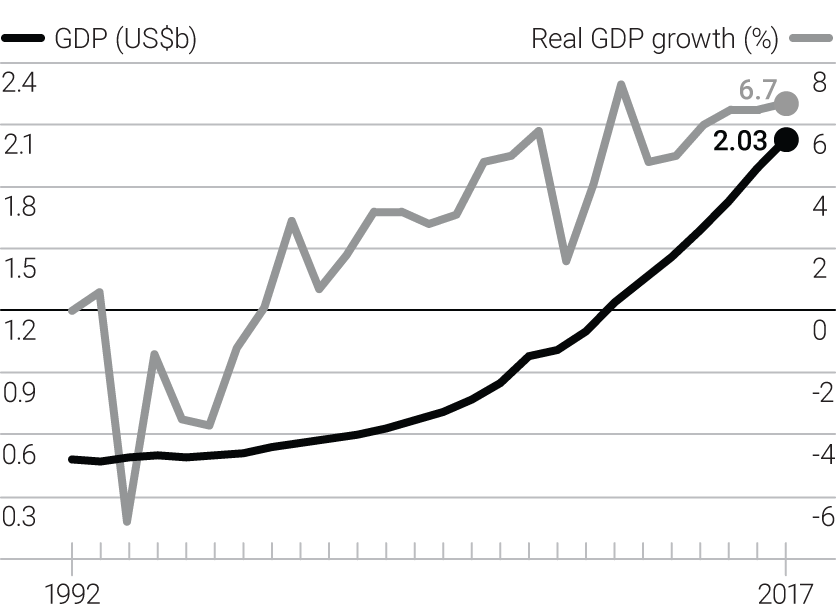


Source of income
A poor country with high unemployment rates, the rents from foreign military bases are a boon to Djibouti’s economic growth
Source: 2017 International Monetary Fund
Economic growth
Djibouti has enjoyed rapid and sustained growth over the past 15 years
Source: Knoema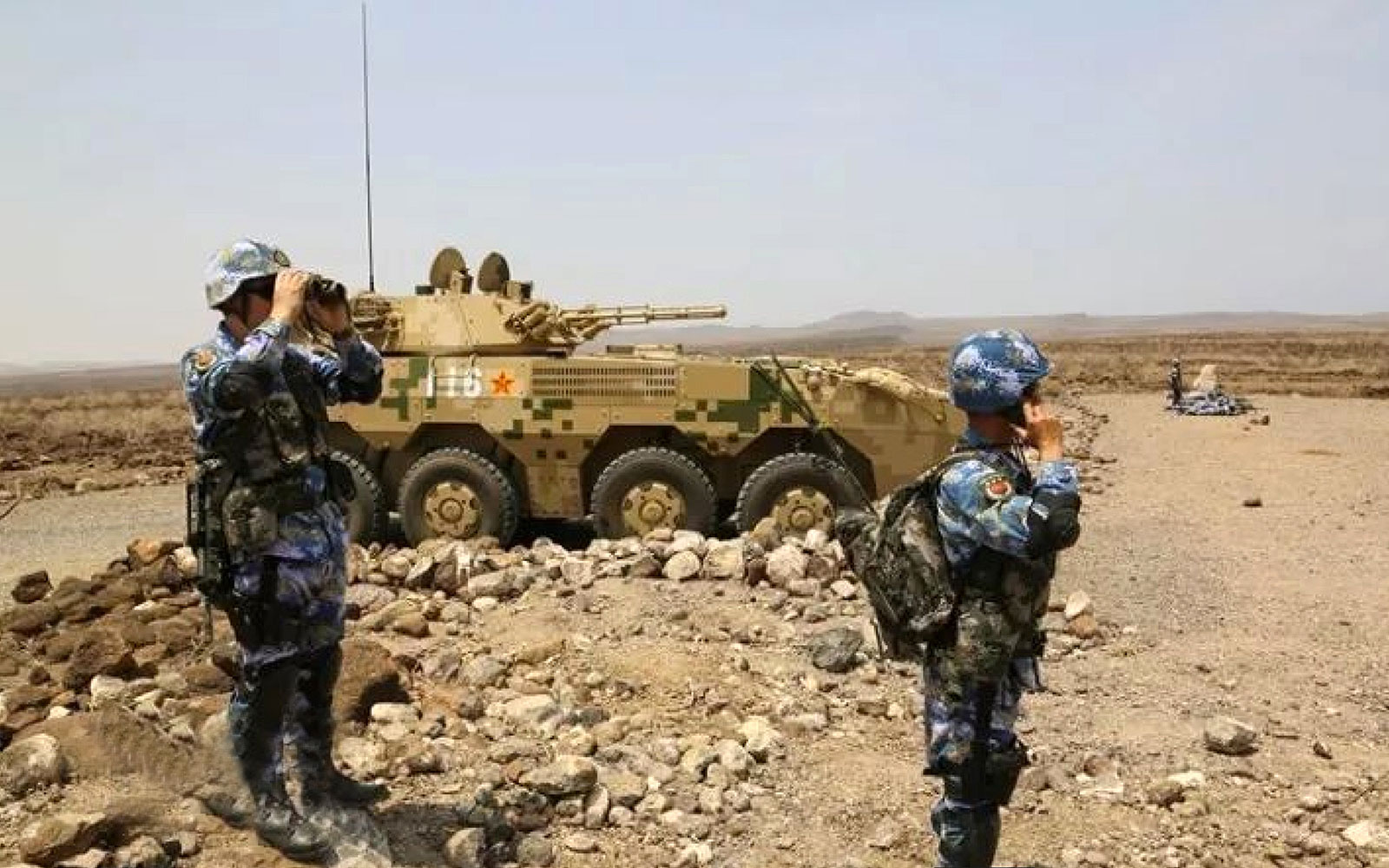

Chinese fire drill in Djibouti. Photo: Weibo
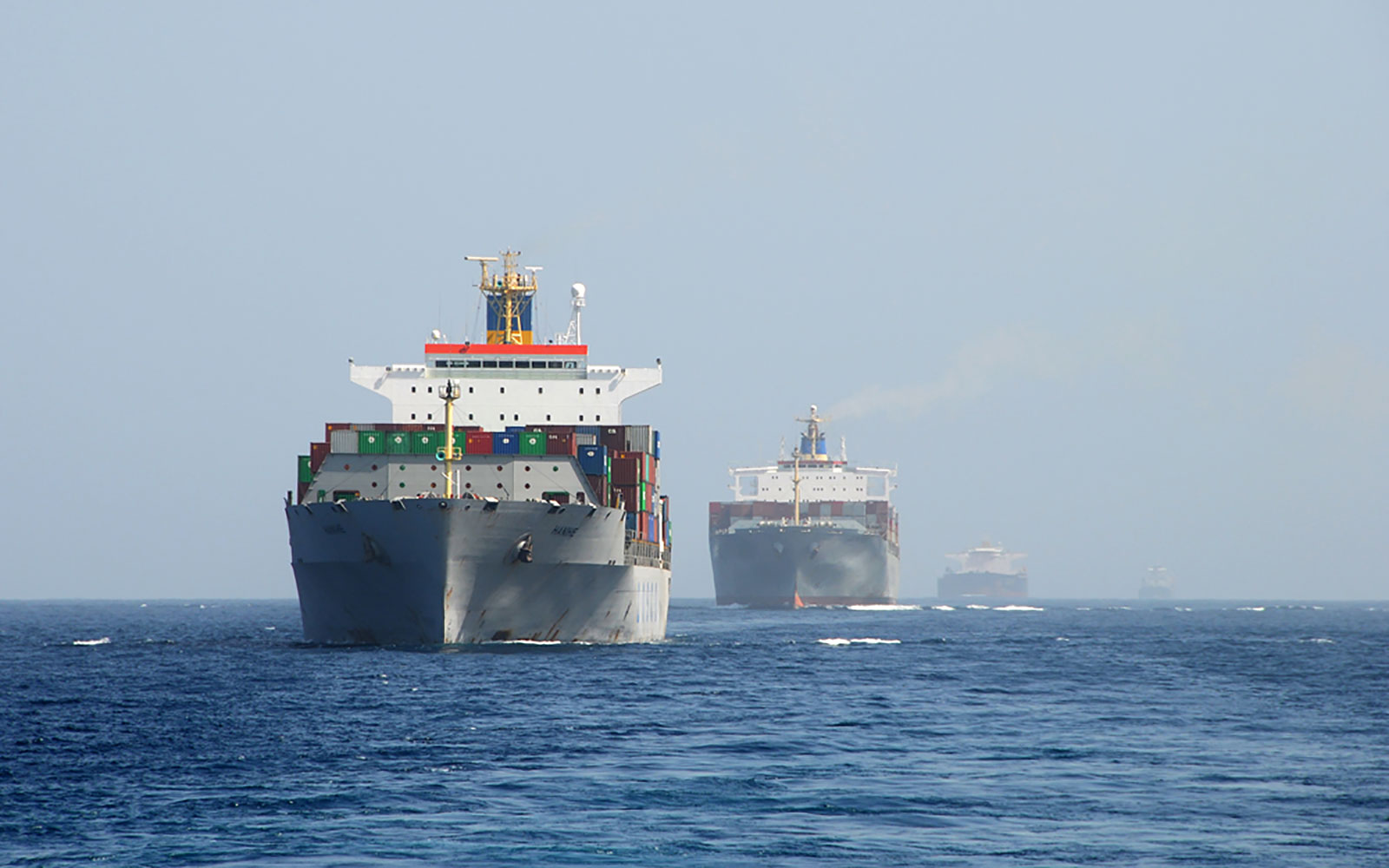


Chinese ships sailing in the Gulf of Aden. Photo: Xinhua
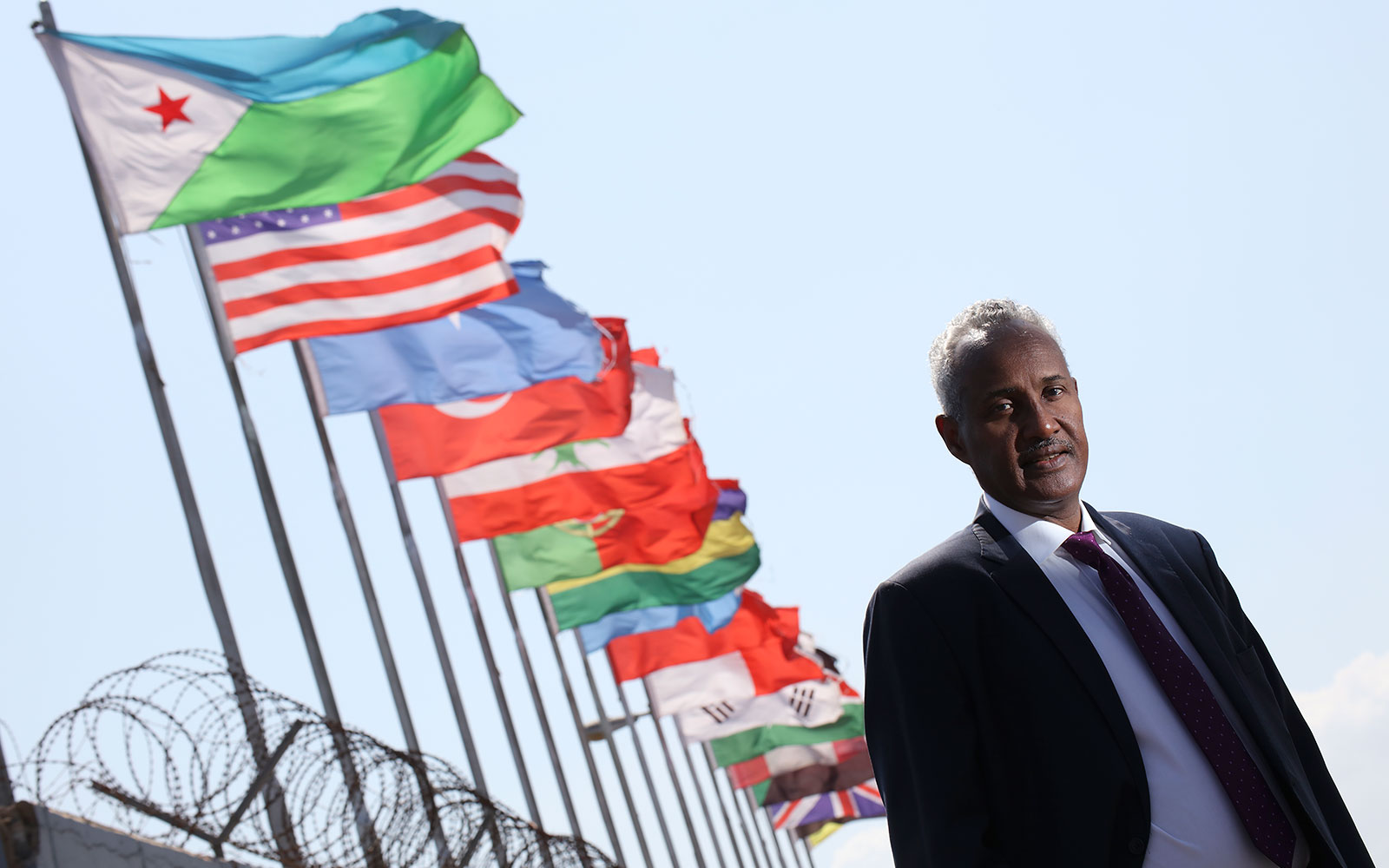


Aboubaker Omar Hadi is the chairman of the Djibouti Ports and Free Zones Authority. Photo: SCMP / Felix Wong
Chinese fire drill in Djibouti. Photo: Weibo
Chinese ships sailing in the Gulf of Aden. Photo: Xinhua
Aboubaker Omar Hadi is the chairman of the Djibouti Ports and Free Zones Authority. Photo: SCMP / Felix Wong
❯
❮
Economic interests
Blessed with a deep natural harbour, Djibouti’s real asset is its geostrategic location. With access to the Gulf of Aden, the Gulf of Arabia, and the Bab-el-Mandeb Strait, Djibouti effectively controls economic trade routes accounting for 20 per cent of all global exports, and 10 per cent of total oil export transits annually.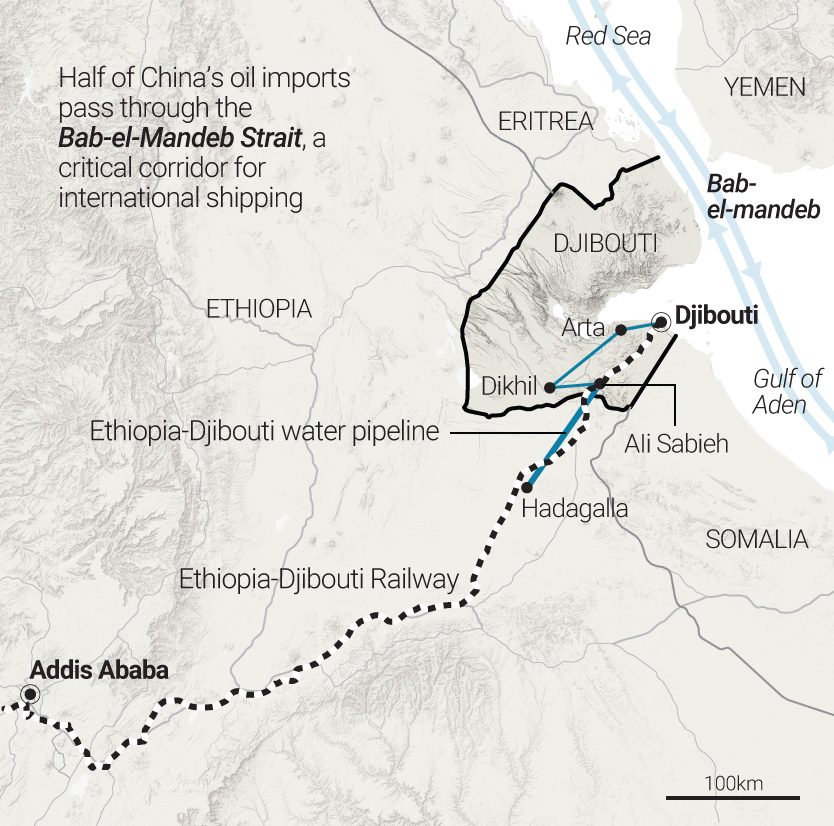

Business opportunities for China
• Explore new overseas markets as demand for domestic infrastructure projects slows.
• Showcase Chinese technology to attract new business opportunities.
• Support President Xi Jinping’s “Belt and Road Initiative.”
• More than 95 per cent of Ethiopia’s trade passes through Djibouti which accounts for 70 per cent of the activity at the Doraleh Container Terminal.
• The port is yet to reach its full potential of 1.6 million tonnes annual capacity.Djibouti’s main investment projects
China is Djibouti’s largest single source of capital. Chinese firms fund nearly 40 per cent of Djibouti’s major investment projects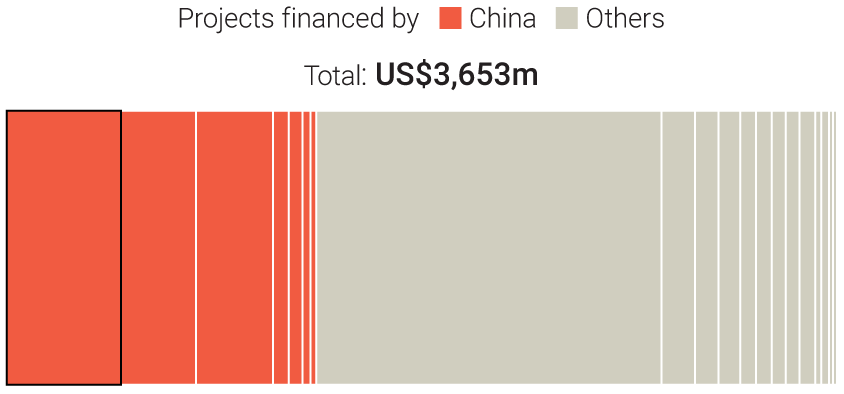

Addis Ababa-Djibouti Railway
Cost: US$490m
Financed by: China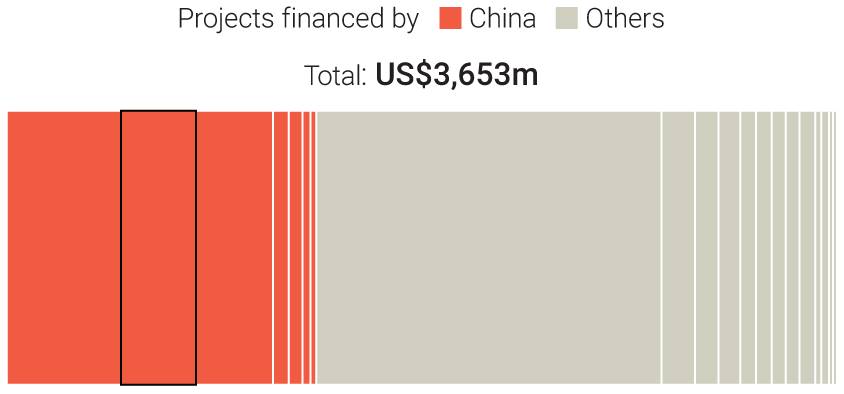

Doraleh Multipurpose Port
Cost: US$340m
Financed by: China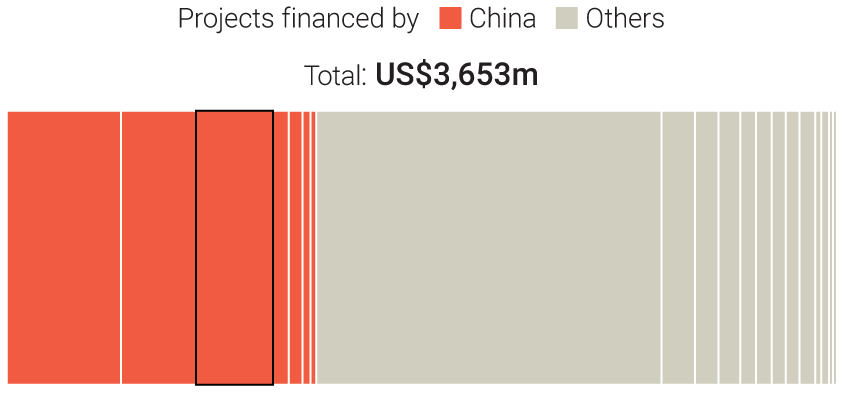

Ethiopia-Djibouti water pipeline
Cost: US$322m
Financed by: China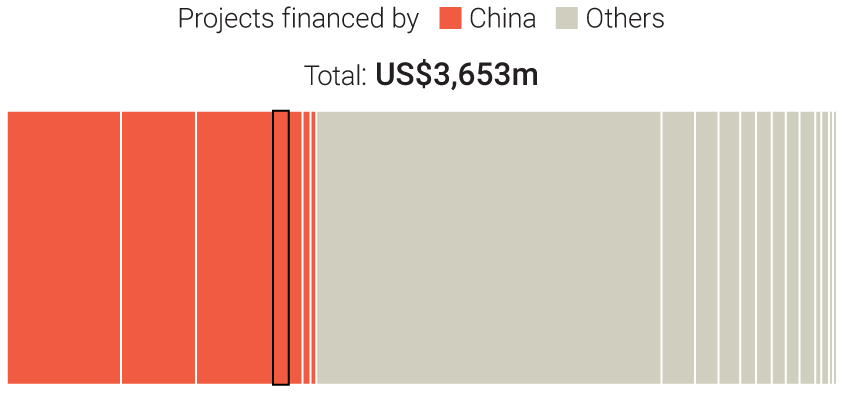

Office Towers
Cost: US$70m
Financed by: China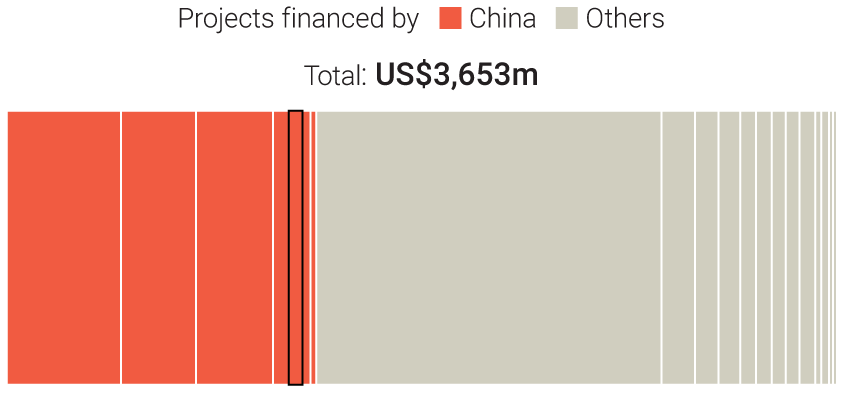

Ghoubet Port
Cost: US$64m
Financed by: China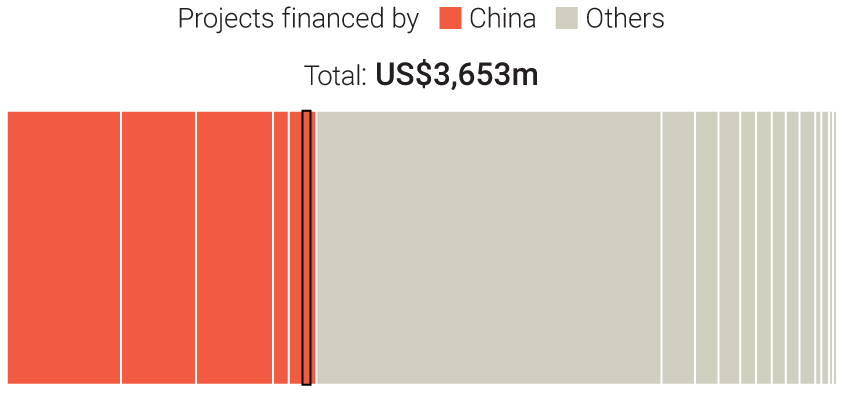

Djibouti International Free Trade Zone
Cost: US$30m
Financed by: China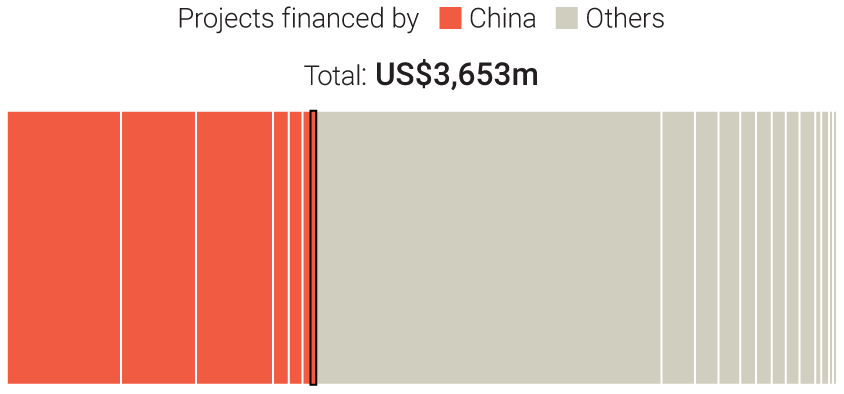

Railway electrification
Cost: US$24m
Financed by: China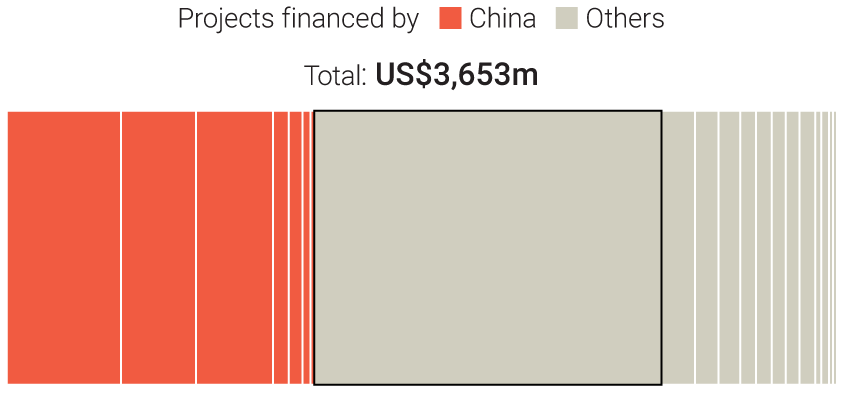

Ethiopia-Djibouti fuel pipeline
Cost: US$1,550m
Financed by: US and South Africa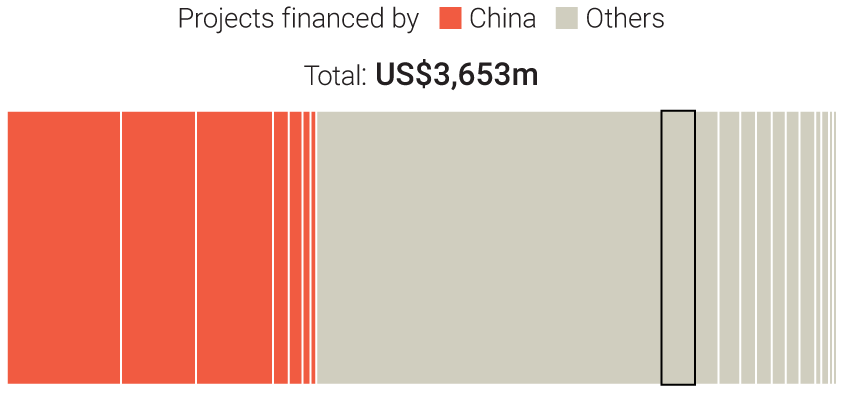

Education and health
Cost: US$174m
Financed by: Africa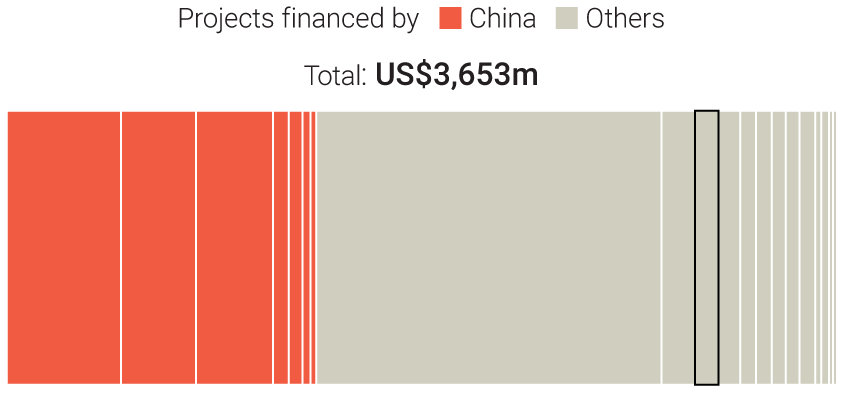

Social Infrastructure
Cost: US$105m
Financed by: Multiple Funders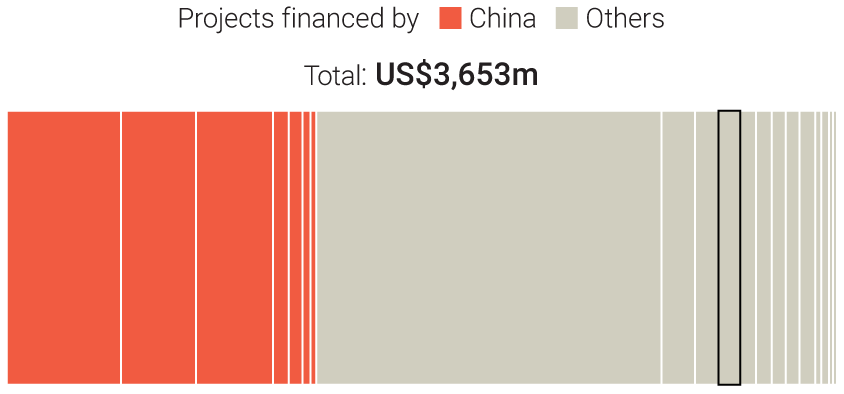

Tadjourah-Balho Road
Cost: US$80m
Financed by: Kuwait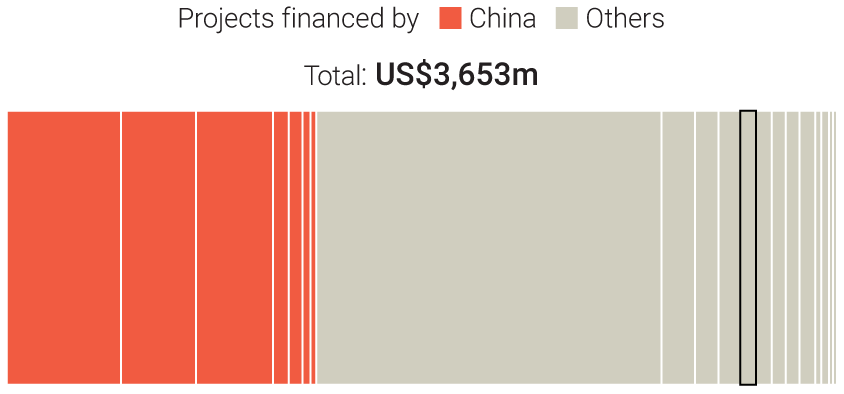

Telecom (undersea cable)
Cost: US$69m
Financed by: World Bank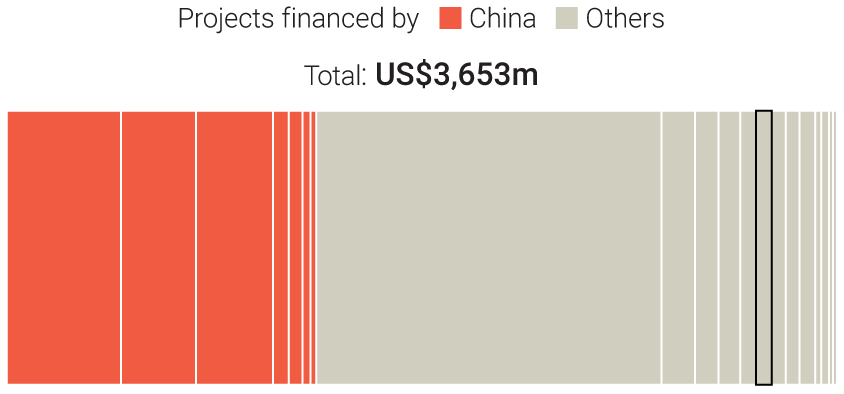

Tadjourah Port
Cost: US$68m
Financed by: Arab, OPEC and Saudi Fund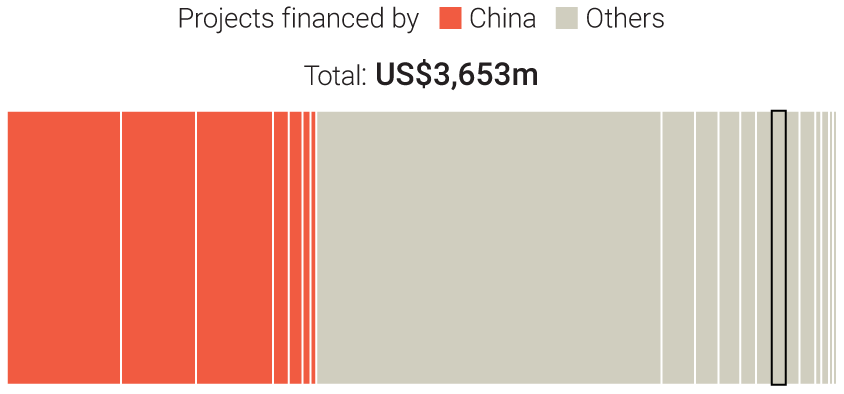

Agriculture, livestock and fishing
Cost: US$66m
Financed by: Africa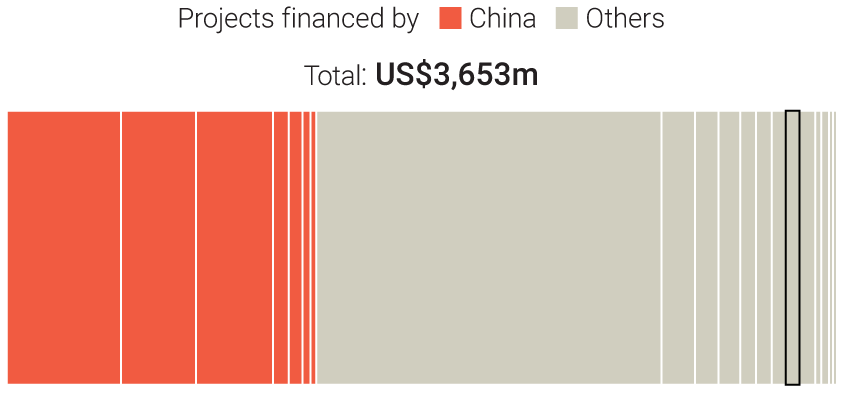

Jabanha’s energy network
Cost: US$65m
Financed by: Arab Fund and Kuwait Fund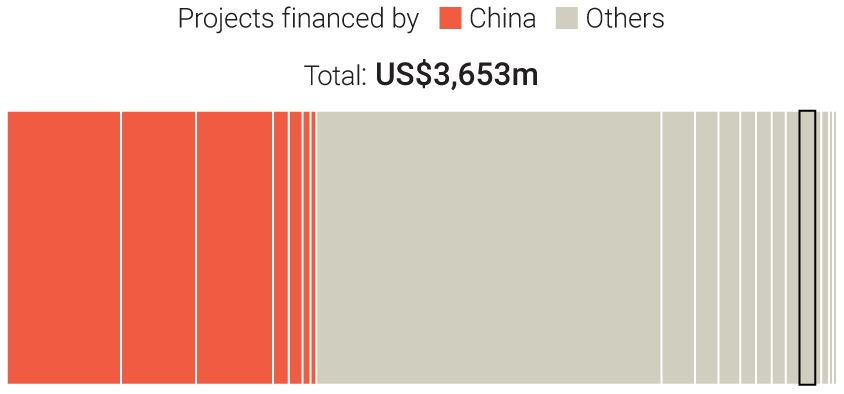

Water desalination plant
Cost: US$63m
Financed by: European Union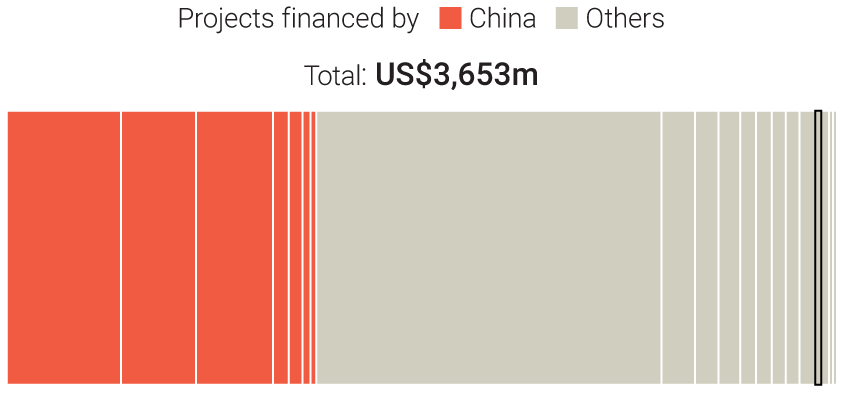

Water infrastructure renovation
Cost: US$33m
Financed by: Arab Fund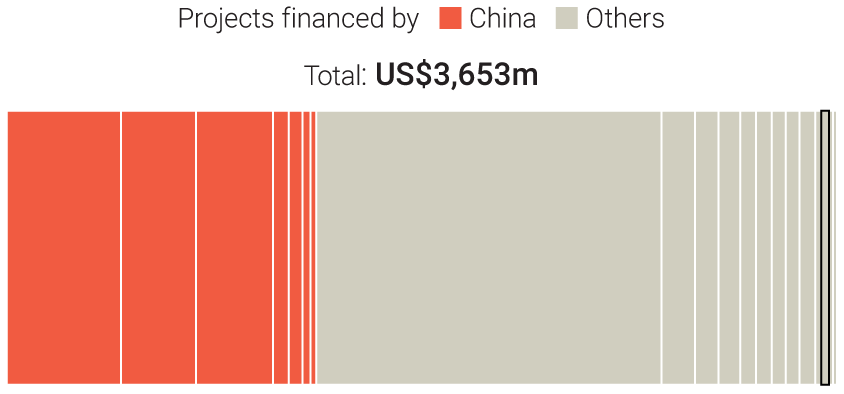

Geothermal energy
Cost: US$23m
Financed by: Multiple funders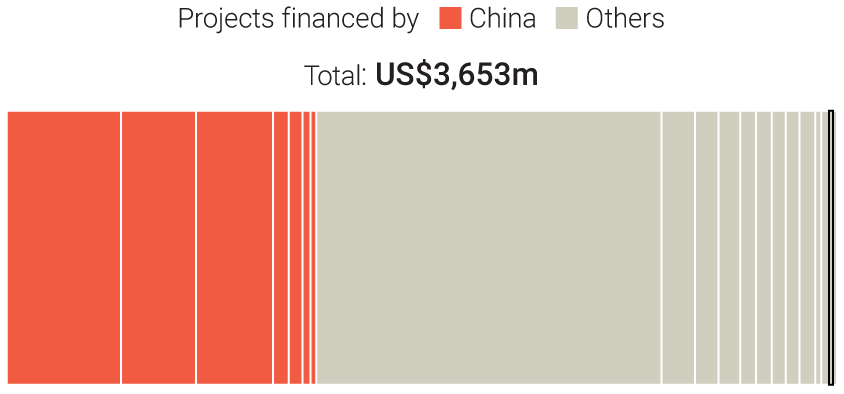

Urbanization and housing
Cost: US$23m
Financed by: Arab Fund and Saudi Fund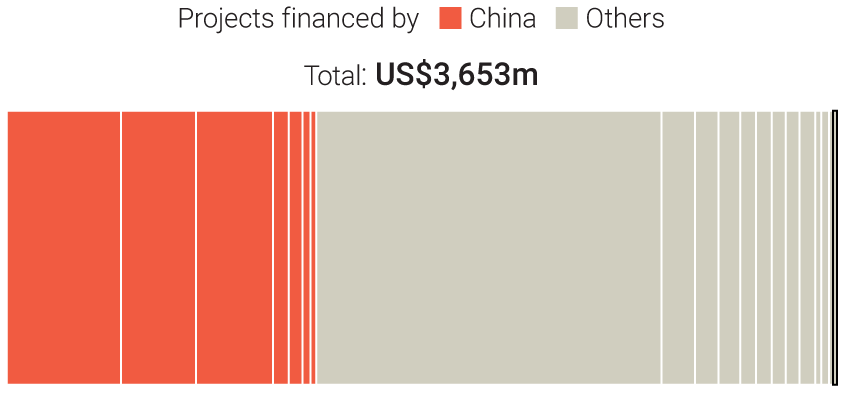

Other Sectors
Cost: US$21m
Financed by: Others
❯
❮
Source: CNA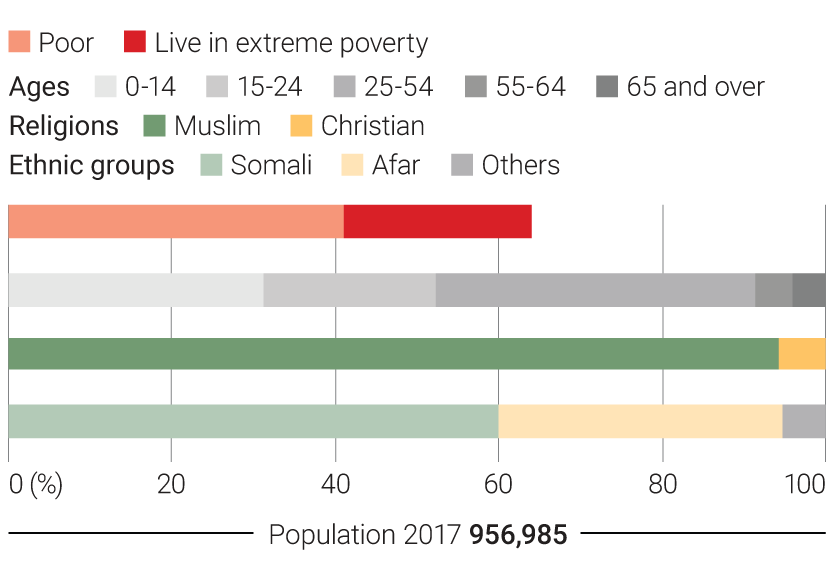

Difficult lives
Despite remarkable growth, poverty and unemployment remain widespread in Djibouti
Sources: CIA World Factbook, Worldometers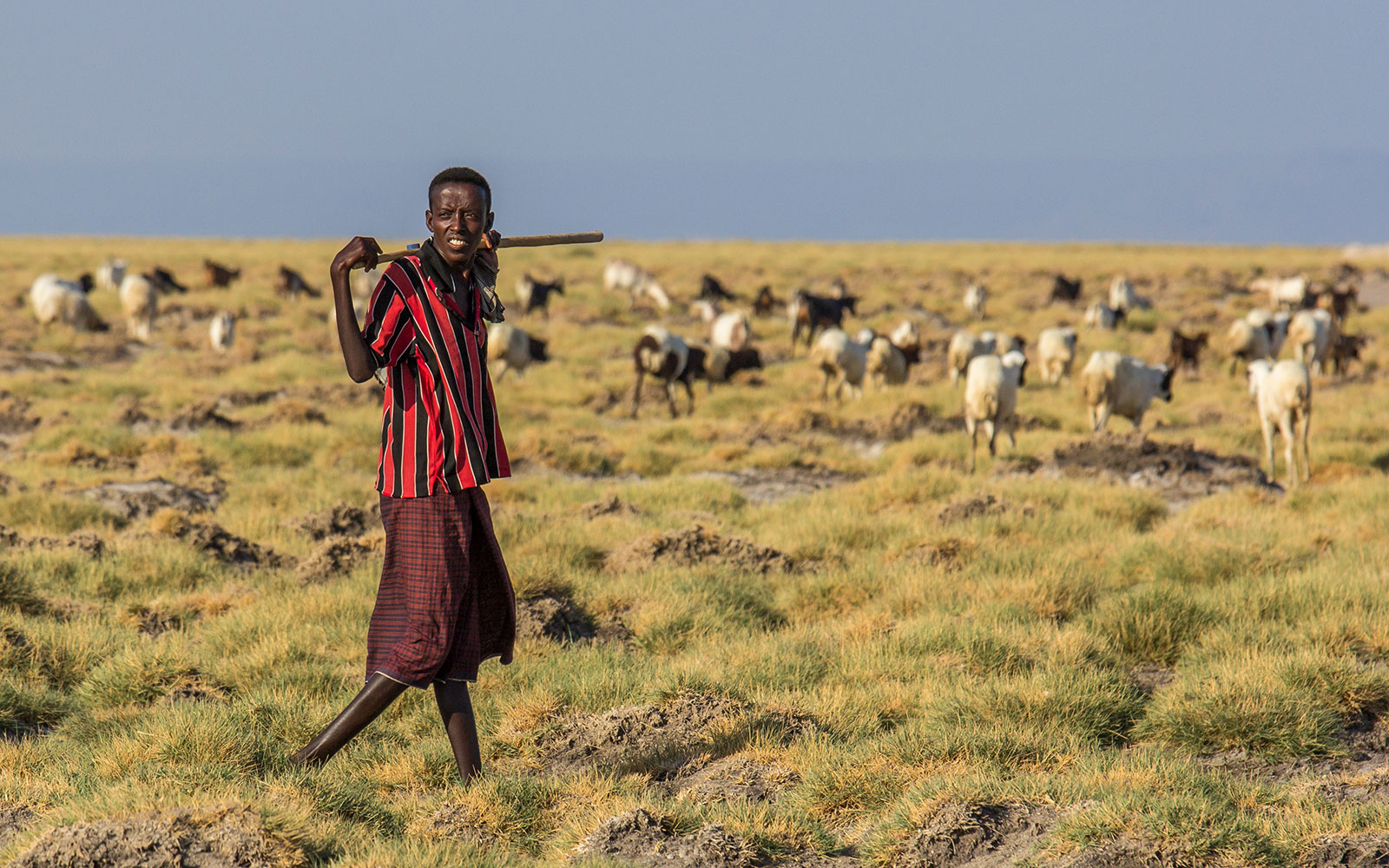

Herding sheep in Djibouti. Photo: Shutterstock
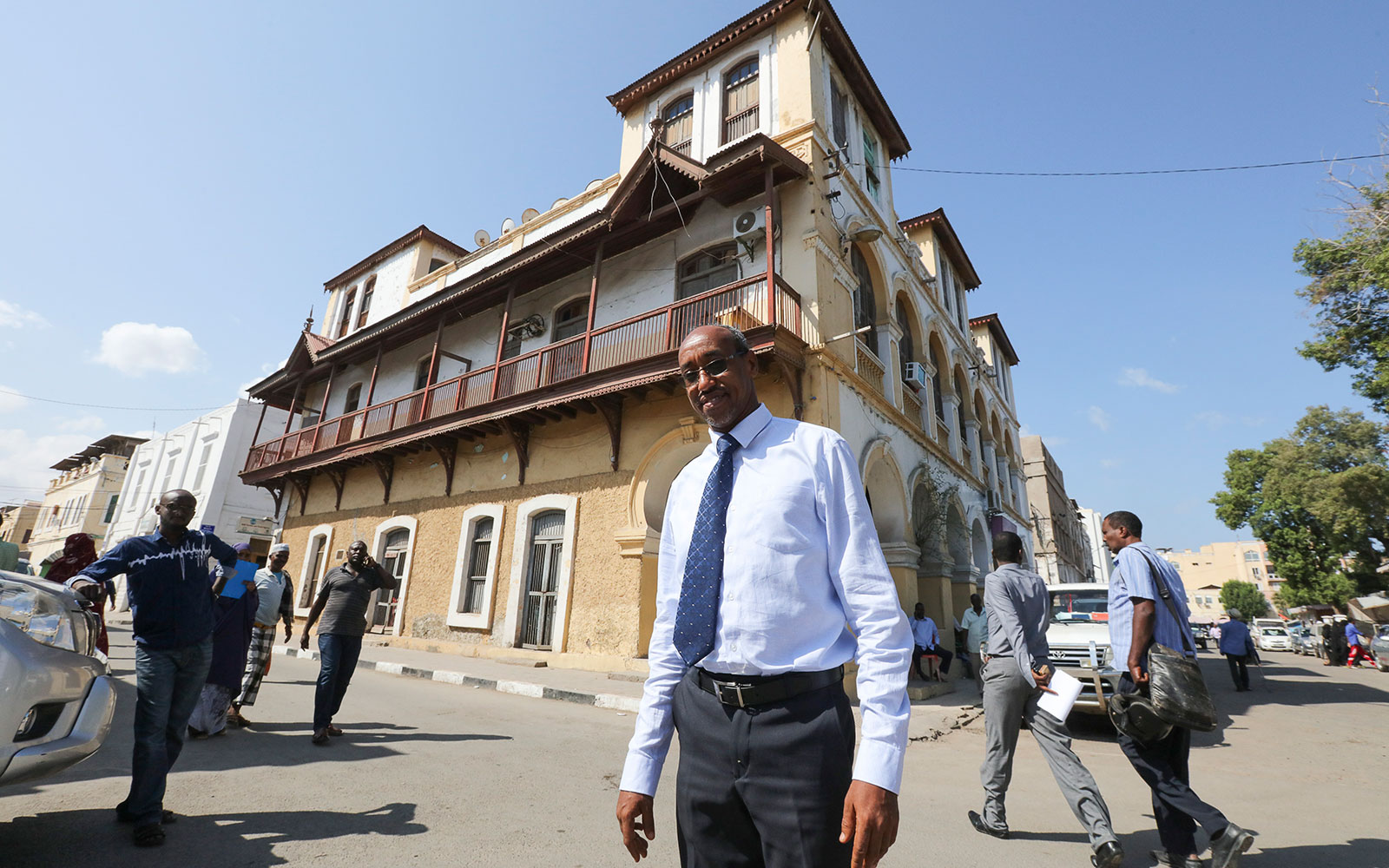


Osman Abdi Mohamed, General Manager of National Tourism Office of Djibouti. Photo: SCMP / Felix Wong
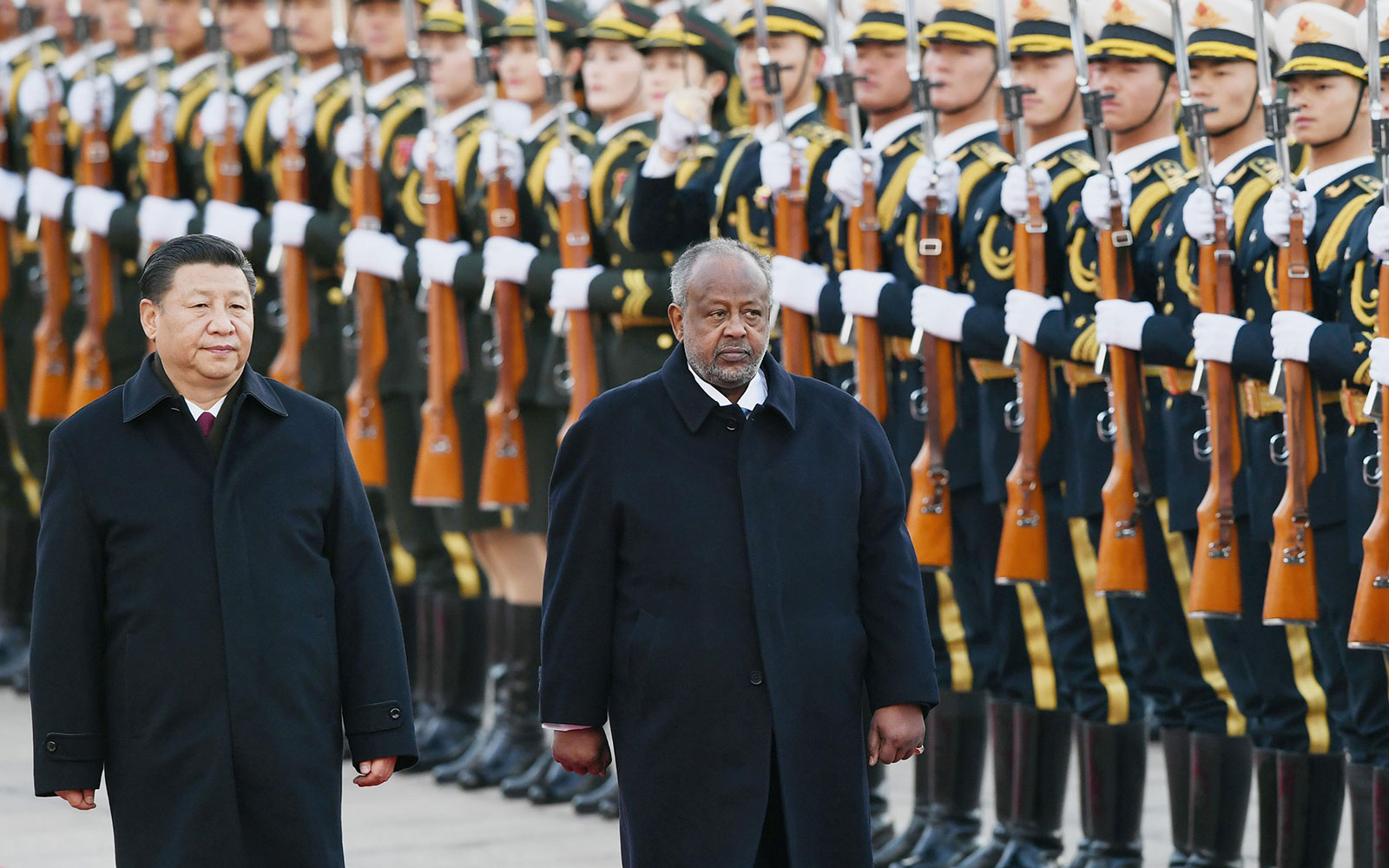


Djibouti President Ismail Omar Guelleh with President Xi Jinping in China, 2017. Photo: Kyodo
Shepherding sheep in Djibouti.. Photo: Shutterstock
Osman Abdi Mohamed, General Manager of National Tourism Office of Djibouti. Photo: SCMP / Felix Wong
Djibouti President Ismail Omar Guelleh with President Xi Jinping in China, 2017. Photo: Kyodo
No comments:
Post a Comment